|
Are Weebly, Amazon and Other Tech Companies Ripping Us Off? Tips, upsells, unauthorized charges and renewals. More than just annoying and time consuming. Shady math can portend economic storms and plunging stock market prices. Tips I can understand, tipping my hairdresser, who just spent two hours on highlights, or my housekeeper, who did the same on cleaning. However, do we have to tip someone who puts a scone in a box? Norms around tips are changing. However, that has a lot more to do with underpaid staff than interstellar service. There are a lot of guides out there about what might be an appropriate way to tip in the 21st Century. This article is more about what the tips say about what the company and our economy at large. Upsells Does the upsell, which everyone is trained to do, reveal smart business practices or underlying economic weakness? Are companies actually ripping us off by forcing us into new, more expensive subscriptions? Are Weebly, Amazon and Other Tech Companies Ripping Us Off? I’ve recently come across a few very troubling incidents personally. After perusing Reddit and asking around, it seems that these weren’t isolated bad luck on my part. Amazon Amazon withdrew money from my personal checking account without permission, without notifying me, charging me hundreds of dollars over a few years. The company was double-billing me for my Amazon prime account. They gave me no credible explanation about why they did this, though they did promptly refund the charges, once I discovered them and complained. When I went to my bank to stop Amazon‘s ability to withdraw money from my checking account ever again, the bank representative who assisted me told me he gets multiple complaints every day about Amazon. I was appalled to learn from the bank that Amazon was indeed withdrawing directly from my checking account, even though they told me that they were using a debit card (which wasn’t even in my card history). When I asked for the card number or even the last four digits to investigate things, Amazon refused to give me that information. Amazon had my bank information because they are supposed to deposit my earnings from book sales. It took multiple calls with multiple customer service representatives before I finally got through to a supervisor. Once I did, the reimbursements happened immediately – with credits going out to multiple credit cards (which hadn’t even been charged on). I wasn’t going to argue that point. However, finding support on Amazon is like traversing a medieval maze, and how many people would make it through six daft gatekeepers to finally arrive in the hands of someone who can actually do something? If you’ve experienced unauthorized charges on Amazon or had a similar experience, please share and tag me on Instagram.com/NatalieWynnePace, and email [email protected]. Weebly A few days ago, I received an email from Square (Block Inc.) that my Weebly website renewal was going to be automatically transferred to the most expensive business account, tripling my annual cost. I underscore that this was going to be done automatically, unless I took action first to prevent it from happening. I can only wonder how many people might’ve missed that email and then had to fight with the company afterwards! What was even more distressing was that the email indicated that my current features were only going to be available at this much higher price. However, when I looked at the actual plans themselves, there was an option that featured the exact things that I use for the exact same price. I got on a chat with a Weebly customer service representative. It took about 45 minutes to resolve the matter and renew – and prevent the highway robbery that was rolling down the bend if I didn’t. When I asked the customer service representative why I had received an email saying that Weebly was going to almost triple my price automatically without my authorization, he said that they always want to offer the best plan. In other words, they’re taught to upsell… except in this case, it wasn’t an upsell. I wasn’t being offered anything. It was going to happen automatically, without my authorization. If you’ve experienced unauthorized charges on Weebly or had a similar unpleasant experience with another company, please share and tag me on Instagram.com/NatalieWynnePace, and email [email protected]. Cooking the Books This kind of deceptive business practice is rather unusual, except in certain periods of time – when a company is struggling to look good for their quarterly earnings reports. Weakening economic conditions create an environment when some executives aggressively, brazenly, step over the line of business ethics. A confluence of shady math often precedes a pretty steep recession, which brings me to another experience I had before the Dot Com Recession, when Global Crossing, Worldcom, Lucent and a slew of other telecommunications companies failed. Back in 2001, I was working as the vice president of operations for a long-distance telephone company. The company was buying wholesale from one of the major, publicly-traded telecom companies. One day, I overheard a very heated conversation between the boss of our company and his wholesale representative. Our head honcho was screaming into the phone: “You’re cooking the books!” What was happening? The younger generation might not remember a time when calls weren’t free. However, back in 2000, long-distance rates dropped from $.25 a minute or higher to under 10 cents a minute. We were purchasing wholesale for about four cents a minute, and then selling to our customers for under $.10 a minute. The telecommunications industry, largely because of Skype and VOIP disruption, was experiencing a troubling contraction in pricing. A lot of telecom companies were really in trouble – yet they were still the hottest stocks on Wall Street, (with analyst buy recommendations). Our provider was charging us at the old wholesale rates, which were four times the contracted rate. For months they had never changed the price to what was contracted, or credited the invoice to reflect the proper amount due. The rep just kept telling us that everything was getting done. The company was just backlogged. Don’t worry. Thanks to that knowledge, when I met with a financial advisor who was trying to convince me to invest in telecom stocks back in August 2000, I declined. That decision to avoid the overpriced marketplace, where sadly there were a lot of companies cooking the books, led me to the career I have today of adding a splash of green to Wall Street, and transforming lives on Main Street. If I had let the CFP do what he wanted to do with my money, something many other Main Street investors were doing, I would have ridden the Wall Street rollercoaster down to losses of -78% or more. (Many of the telecoms went completely out of business.) Shady Math Can Get Past the Auditors The ethically challenged actions I’ve outlined above might make it past the auditors of the earnings reports. Amazon’s auditors have no idea that the company just credited me hundreds of dollars in unauthorized double billing or that Weebly’s little revenue bump trick didn’t work. They won’t catch either tactic until an eyesore of refunds has to be declared on the balance sheet. Uber/Lyft I didn’t experience any grift from Uber and Lyft. However, I’m including these companies because there were a great deal of cash-negative “New Economy” companies that crashed and burned in the Dot Com Recession. Uber, Lyft and other ride-share, food delivery and micro mobility companies are cash-burn companies that have struggled for years to become profitable. Some have been taken private (GrubHub). Others are in bankruptcy (Bird). Both Uber and Lyft have been cash negative since inception (2009), with the only exception being 2018, when Uber managed to turn a profit of $997 million. Customers always experience the fallout of a failing or struggling company before the final blow. Companies like Bird can continue operating during their debt restructuring. However, the stock almost always goes to zero. So, with Uber trading at an all-time high, even though the company lost another $9 billion last year, now might be a good time to factor in your customer experience into your trading due diligence. Trying to hail a rideshare can be pretty challenging these days. If you ask your rideshare driver how they like their company, you might get an earful of complaints that won’t end until you arrive at your destination. Each time I try using the app, I might have to wait 10-15 minutes in the hopes of finding a driver near me, only to be advised that there isn’t anyone in my area (though the map of drivers tells a different story). This has become such a problem that I’ve taken to sleeping in airport hotels to avoid the worry. One study by MIT in 2018 claimed that rideshare drivers make less than $4/hour, once you factor in their costs. Can tips bring drivers above the poverty line? Isn’t that why we’re expected to tip everyone these days in the U.S.? (This is not the case in other countries. U.K. rideshare drivers must receive minimum wage, holiday pay and a pension.) Ride-share companies aren’t getting rich on their business model. The last time we had a spate of cash negative speculative stocks and a flashy story (“The New Economy”) about why that was okay, Dot Com stocks crashed by -78% and took 15 years to crawl back to even. If you’d like an Uber Stock Report Card, email [email protected]. Banks. Term Loans for Their Toxic Bonds Ends on March 11, 2024. I’m going to address why the bank failures were largely curtailed last Spring, and why many finance companies will be tested this year in an upcoming blog. In the meantime, we continue to underweight financials in our Investor Educational Retreats and sample pie charts. Bottom Line I am giving you specific examples of a very personal nature because if you are experiencing things of this kind: · We want to warn one another and protect our friends and other consumers · We want to protect our investments and retirement plans When questionable actions of this nature become rampant, companies are trying to keep their earnings reports looking strong, so their stock prices remain high. They cannot do that forever. At some point, their customers revolt, the class action lawyers have a field day, the auditors dig deeper, the rating agencies review their credit, the analyst recommendations do an about-face and the gap-down in share prices can happen before we can protect ourselves. It’s always a better plan to fix the roof while the sun is still shining. Stocks keep hitting new highs. A properly diversified plan with regular rebalancing allows us to participate in the profits, while protecting ourselves from the shenanigans and inevitable fallout. Join us at our April 27-29, 2024 Spring Financial Freedom Retreat. Learn nest egg strategies, how to get hot and diversified (including in artificial intelligence), and what's safe in a Debt World. You'll even discover how to save thousands annually with smarter big-ticket choices. Yes, it's a complete money makeover, which is a great way to start 2024! Email [email protected] to register. Learn the 15+ things you'll master and read testimonials in the flyer on the home page at NataliePace.com. Register with friends and family to receive the best price. "Ten minutes into the first day I was already much smarter about investing than I ever thought I would be in my life and I knew I was in exactly the right place at this retreat. I am amazed at how EASY and FUN it is to make my money work for me and those I love. I think this kind of information should be compulsory in schools. I wish I'd learned this sooner." CM 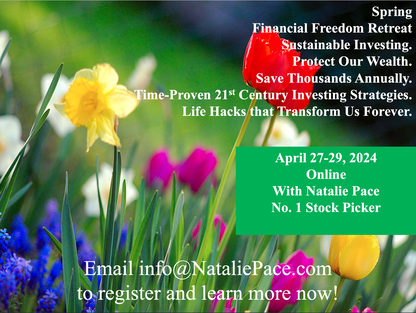 Join us for our Online Spring Financial Freedom Retreat. April 27-29, 2024. Email [email protected] or call 310-430-2397 to learn more. Register by Jan. 31, 2024 to receive the best price and a 50-minute complimentary private, prosperity coaching session (value $400). Click for testimonials, pricing, hours & details.  Join us for our Restormel Royal Immersive Adventure Retreat. March 7-14, 2025. Email [email protected] to learn more. Register by Jan. 31, 2024 to receive $500 off the regular price. Click for testimonials, pricing, hours & details. There is very limited availability, and you must register early to ensure that you get the exact room you want. This retreat includes an all-access pass to all of our online training for a full year for two and three 50-minute private, prosperity coaching sessions! 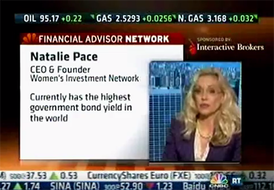 Natalie Wynne Pace is an Advocate for Sustainability, Financial Literacy & Women's Empowerment. Natalie is the bestselling author of The Power of 8 Billion: It's Up to Us and is the co-creator of the Earth Gratitude Project. She has been ranked as a No. 1 stock picker, above over 835 A-list pundits, by an independent tracking agency (TipsTraders). Her book The ABCs of Money remained at or near the #1 Investing Basics e-book on Amazon for over 3 years (in its vertical), with over 120,000 downloads and a mean 5-star ranking. The 5th edition of The ABCs of Money and the 2nd edition of Put Your Money Where Your Heart Is are the most recent releases of these books. Follow her on Instagram. Natalie Pace's easy as a pie chart nest egg strategies earned gains in the last two recessions and have outperformed the bull markets in between. That is why her Investor Educational Retreats, books and private coaching are enthusiastically recommended by Nobel Prize winning economist Gary S. Becker, TD AMERITRADE chairman Joe Moglia, Kay Koplovitz and many Main Street investors who have transformed their lives using her Thrive Budget and investing strategies. Click to view a video testimonial from Nilo Bolden. Check out Natalie Pace's Substack podcast on Apple and Spotify. Watch videoconferences and webinars on Youtube. Other Blogs of Interest Housing. Unaffordable. What Works? Case studies and creative solutions. Don't Reach for Yield. Closed-End Funds. 2024 Investor IQ Test. Answers to the 2024 Investor IQ Test. Apple's Woes Drag Down the Dow. The Winners & Losers of 2023. Ozempic, Magnificent 7 & Beyond. 2024 Crystal Ball. The Underperforming DJIA, Full of Fossil Fuels and Forever Chemicals. A Spectacular Year for 3 of the Magnificent 7. The Best ROI* (Almost 40%!) & 7 Life Hacks That Save Thousands. Portugal Eliminates Tax Advantages for Ex-Pats. Holiday Gift Giving on any Budget. Including No Budget. Once in a Century Events are Happening Every Day. The Crypto Winter Enters Its 3rd Year. Earn $50,000 or More in Interest. Safely. Finally. Freebies and Deals for Black Friday and Cyber Monday. Auto Strikes End. EV Price Wars Continue. WeWork's Bankruptcy. Half-Empty Office Buildings. Problems in our Personal Wealth Plan. Solutions for Unaffordable Housing. Cruise Ships Give Freebies to Investors. Should You Take the Bait? Should You Take a Cruise? Bonds. Banks. The Treacherous Landscape of Keeping Our Money Safe. 7 Rules of Investing Air B N Bust? Santa Rally 2023 or Time to Get Defensive? Barbie. Oppenheimer. Strikes. Streaming Wars. Netflix. Monero: A Token of Trust? 13 Lifestyle Choices to Reduce Waste, Pollution & CO2 & Save a Boatload of Dough. China Bans Apple 11-Point Green Checklist for Schools. Artificial Intelligence and Nvidia's Blockbuster Earnings Report Biotech in a Post-Pandemic World 10 Wealth Secrets of Billionaires and Royals. What Happened to Cannabis? Bank of America has $100 Billion in Bond Losses (on Paper) The USA AAA Credit Rating is on a Negative Watch. Lithium. Essential to EV Life. I'm Just Not Good at Investing. Investors Ask Natalie. Should I Buy an S&P500 Index Fund? Investors Ask Natalie. Bonds Lost More than Stocks in 2022. 2023 Company of the Year Do Cybersecurity Risks Create Investor Opportunities? Writers Strike, While Streaming CEOs Rake In Hundreds of Millions Annually. I Lost $100,000. Investors Ask Natalie. Artificial Intelligence Report. Micron Banned in China. Intel Slashes Dividend. Buffett Loses $23 Billion. Branson's Virgin Orbit Declares Bankruptcy. Insurance Company Risks. Schwab Loses $41 Billion in Cash Deposits. Fiat. Crypto. Gold. BRICS. Real Estate. Alternative Investments. BRICS Currency. Will the Dollar Become Extinct? The Online Global Earth Gratitude Celebration 7 Green Life Hacks Fossil Fuels Touch Every Part of Our Lives Are There Any Safe, Green Banks? 7 Ways to Stash Your Cash Now. Lessons from the Silicon Valley Bank Failure. Which Countries Offer the Highest Yield for the Lowest Risk? Solar, EVs, Housing, HSAs -- the Highest-Yield in 2023? Why We Are Underweighting Banks and the Financial Industry. 2023 Bond Strategy Emotions are Not Your Friend in Investing Bonds Lost -26%, Silver Held Strong. Save Thousands Annually With Smarter Energy Choices Is Your FDIC-Insured Cash Really Safe? Money Market Funds, FDIC, SIPC: Are Any of Them Safe? My 24-Year-Old is Itching to Buy a Condo. Should I Help Him? The 12-Step Guide to Successful Investing. The Bank Bail-in Plan on Your Dime. Rebalancing Your Nest Egg IQ Test. Answers to the Rebalancing Your Nest Egg IQ Test. Important Disclaimers Please note: Natalie Pace does not act or operate like a broker. She reports on financial news, and is one of the most trusted sources of financial literacy, education and forensic analysis in the world. Natalie Pace educates and informs individual investors to give investors a competitive edge in their personal decision-making. Any publicly traded companies or funds mentioned by Natalie Pace are not intended to be buy or sell recommendations. ALWAYS do your research and consult an experienced, reputable financial professional before buying or selling any security, and consider your long-term goals and strategies. Investors should NOT be all in on any asset class or individual stocks. Your retirement plan should reflect a diversified strategy, which has been designed with the assistance of a financial professional who is familiar with your goals, risk tolerance, tax needs and more. The "trading" portion of your portfolio should be a very small part of your investment strategy, and the amount of money you invest into individual companies should never be greater than your experience, wisdom, knowledge and patience. Information has been obtained from sources believed to be reliable. However, NataliePace.com does not warrant its completeness or accuracy. Opinions constitute our judgment as of the date of this publication and are subject to change without notice. This material is not intended as an offer or solicitation for the purchase or sale of any financial instrument. Securities, financial instruments or strategies mentioned herein may not be suitable for all investors. Unaffordable Prices. High Interest Rates. Buyer’s Remorse. What Works in Real Estate These Days?25/1/2024
Unaffordable Prices. High Interest Rates. Buyer’s Remorse. What Works in Real Estate These Days? Pandemic Purchasers Regret Buying a Home, as Do Most Millennials. Over the past few years, we’ve seen a lot of studies revealing the same thing. Recent homeowners aren’t happy with their purchase. Pandemic purchasers felt pressured to buy sight-unseen. They weren’t aware of all of the extra costs that come along with homeownership, including closing fees, maintenance, taxes, etc. According to a new survey by Real Estate Witch, 90% of Millennials aren’t happy with their 1st home purchase. That’s not surprising when one-third of our income is required to buy these days. The reasons for buyer remorse include a bad location, bad neighbors and interest rates that are too high. So, what’s the solution for Millennials and Gen Z young adults who want to own instead of making the landlord rich? How can Baby Boomers downsize, when high interest rates make it unaffordable to buy anything – when they would end up with something smaller that is more expensive? Waiting for interest rates or home prices to become affordable can be a frustrating strategy. Home prices and interest rates have been on fire recently, and no amount of rain (war, a plunge in the personal savings rate, empty office buildings) has cast the economy into a recession or put pressure on homeowners to list. (There are 2.1 million U.S. mortgages that are seriously underwater. However, there are few incentives to give up the property if they are able to hang on, given the high prices and interest rates.) Another complicating factor is that when we wait for prices to fall, few of us have the money, liquidity and credit score to buy anything. (The reason most of us don’t buy low is that we can’t.) To complicate matters further, one of the worst financial decisions anyone can make is to buy high before prices fall, and have their mortgage higher than the value of their home. This is a disaster that ruins our credit rating for as long as our debt is higher than our assets, and makes the bank an adversary that we are beholden to. Also, we get stuck with that home, even if opportunities in other cities arise for our career, or if there are other compelling reasons to sell. If we buy too high, we might not be able to rent it out to cover costs. Despite all of those challenges, there are a few out-of-the-box solutions that help all demographics to solve housing challenges. As just one example, multigenerational housing is more popular today than it was in the Great Depression. Because real estate has expensive upkeep, including property taxes and maintenance, and is illiquid (requiring costs and time to sell), it’s very important to plan the purchase carefully. Below are a few case studies and a number of resources that will help us design a solutions-based strategy that’s right for us. Alvin‘s Off-Grid Solar Home in the Forest of British Columbia Alvin was a star circus performer in one of the major Cirque du Soleil shows (Ka) on the strip in Las Vegas for many years. After he and his wife had their son, they had second thoughts about raising their son in Sin City. A soul-changing journey to Peru cemented their commitment to live in greater harmony with our planet. Fortunately, they had purchased their home at a time when real estate prices in Las Vegas were rock bottom (2011). By 2016, they had doubled their money. They easily sold their home, purchased 16 acres in British Columbia, and moved. That was the fun part of the adventure. Living in an off-grid solar-powered RV for almost 2 years was a more difficult challenge. Ultimately, Alvin built an off-grid solar-powered house. He did most of the labor himself, which made the cost of the build far more affordable. He also researched how to properly insulate a home, and position the windows best for passive solar. Today, Alvin has become an off-grid consultant, in addition to his main income-producing gig. You can watch Alvin talk about his journey in his own words at YouTube.com/NataliePace. You can also see Alvin's short films that he created for our Earth Gratitude project. Sia donated a song for one of the films! Alvin Tam (Sia “Miracles”) video Alvin Tam Earth Gratitude video CoAbode When Carmel Boss and her husband decided to live in separate homes, she really wanted to have another adult around. That was the inception and inspiration for her business, CoAbode.org. Her son is now a young professional, and her business is more popular than ever. When two single mothers share a home together, the savings for each family can be up to $19,000 per year. Each mother also has an additional 56 hours per month for personal care. Co-Abode is expanding to serve single fathers, college students, single women and pretty much anybody who would like to save costs by teaming up to get a much bigger place, often in a better neighborhood, for far less than they would pay by going it alone. (There’s a vintage comedy, The Odd Couple, about two divorced fathers who did this.) The women’s advocate attorney, Gloria Allred shared a home when she was a young single mother, as did I. You can watch my interview with Carmel Boss on YouTube.com/NataliePace. Millennials Bought a High School Repurposing an unused property can be more affordable than just buying an apartment building or a single home. Of course, there are a lot of remodel costs involved, which might include asbestos or mold abatement (expensive). We need to be pretty good at P&L‘s and projections in order to develop property. With real estate prices so high and interest rates more elevated than they were a few years ago, developers might have a hard time turning a profit. While buying right now might not be a great idea, success is when preparedness meets opportunity. So now might be a great time to research, put together the team, and know what it is you’d love to develop, in case prices fall, and the potential to turn a profit becomes attractive. Bowtie High School had been abandoned for a decade before the remodel. The Millennials purchased the building and grounds for $100,000, and spent an additional $3.3 million turning it into a 31-unit apartment building. One more thing. the remodeled high school initially offered one bedrooms for $1400 (now offered at $1175) a month and two bedrooms for $1600 a month. This is yet another example of how getting a roommate can save us hundreds of dollars a month. Getting a 2-bedroom with a room-mate in Bowtie HS rather than the 1-bedroom equates to savings of up to $7,200/year. A Grandmother’s Unique Way of Downsizing A successful career woman with a home in a very expensive and desirable neighborhood in Southern California decided to give the house (in a trust) to her son and his wife, where they could raise their three kids. This is one of the examples of two generations of the family working together to solve housing and parenting costs and challenges, with a goal of keeping more money that would be flowing out to make the landlord rich. They remodeled the garage into an ADU*, where our VP Grandmother stays sometimes. The grandmother also keeps an efficiency flat on a friend’s large and posh estate nearby. The kids are happy to have Grandma visit, especially when she babysits, or takes on driving duties to tutors and soccer games. ADU: Additional Dwelling Unit. Many cities fast-track permits these days. Multigenerational Households Did you know that women in India are more likely to be CEO than in the U.S. – largely because of the support they receive in the home from their parents? Multigenerational households cut costs dramatically, but offer many other benefits, including food savings, alone time, afterschool care, help with cooking and chores, and having another adult in the room to bounce ideas off of. The College & Post-Grad Real Estate Plan I have seen medical school students purchase a quadruplex and rent it out to their fellow colleagues. Guess who ended up with the quarter of a million in medical school debt, and who made extra money without working. Here again is an example of thinking bigger – rather than just cozying up alone in an expensive, cubby-hole of a unit. This is easier to monetize when real estate prices are not so high. (Refer back to the paragraph where I mention the perils of buying high and having the value drop beneath your purchase price.) The 4 Ds of Real Estate It might be hard to imagine a time when prices become more affordable. However, with the 4 Ds (death, depression, disaster and divorce) ever constant in mortal existence, the cycles do turn. The challenge is to rise above the credit and cash crunch, in order to be in a position to buy when things become affordable. Preparation (getting together a down payment, at minimum) and capital preservation now is key to achieve that. Most people don’t buy low because they can’t. Cast Your Vision Out 10 Years In my research of very high net worth individuals who keep the wealth in their family for generations (sometimes centuries), I’ve discovered that these families plan a century in advance. How many of us are even thinking 10 years ahead? It’s important to cast our vision out that far in advance before we buy a home that we might be stuck with for a decade (or life). Buying sight unseen is something many people who bit the bait in the pandemic wish they had never done. Opportunities on the Horizon? Will more rental units lower rents? Will more affordable rents help ease the pent-up home buyer demand? Will stubbornly high mortgage interest rates mean few buyers qualify for a loan? How long can sellers hang onto their current homes? Can these challenges be solved by us pulling together the resources of two or three generations (like very wealthy people do) or of a few friends (like the Bowtie H.S. Millennials did)? Bottom Line There is a massive amount of wealth concentrated in Americans over 55 (72% of the nation’s wealth) versus those under 40 (just 7%). The goal is to have a seamless family transition that benefits all the generations. Otherwise, the elder generation’s wealth can end up going to healthcare costs, old folks’ homes and medical insurance, while the younger generation makes the billionaire landlord corporations rich. Adopting a family succession plan the way very affluent families do, with a vision of at least 10 years into the future will equate to a lot more money for everyone to spend on things they enjoy more than prescriptions, hospitals, rent, debt, and other basic needs. We can struggle to survive and be buried alive in bills – everyone fending for herself. Or we can team up, lighten our load and live a richer life. Many hands make for light work. Real Estate Resources I host a real estate master class once a year. The next one will be in June 8, 2024). If you’d like to register at the Early Bird price now, and receive access to our 2023 Real Estate master class as our gift to you, just email us at [email protected]. You can also join me live on Thursday, February 1, 2024, at 4 PM Pacific time for my Real Estate videoconference. That is free. Just email [email protected] with Videocon in the subject line to get the logon instructions. Below are More Real Estate Resources. There are at least 8 case studies in the Real Estate section of The ABCs of Money, 5th edition. There is also a 10-point checklist for homebuyers. Interview with Carmel Boss, founder and CEO, CoAbode. Research shows that when two households share a room, the savings can be up to $19,000 for each household. Alvin Tam shared his journey of leaving Las Vegas and building an off-grid solar home in our most recent Brain Trust meeting. His journey might spark new possibilities for you, too. Alvin Tam (Sia “Miracles”) video Alvin Tam Earth Gratitude video I have an Adulting Life Hacks 12-day videocoaching series (free). There are lots of resources and tips in this series that will inspire us to live a richer life and stop making trillion-dollar corporations rich. In one of our Brain Trust meetings, Terri Quenzer shared her plan of building a Vegan community. The ultimate intergenerational real estate experience would be to join me at our Restormel Royal Manor House Retreat March 7-14, 2025. You can watch the 3-minute video created by an attendee, and get additional information about the upcoming retreat, at the flyer. Get the best price ($500 off) when you register by Jan. 31, 2024.  Join us for our Restormel Royal Immersive Adventure Retreat. March 7-14, 2025. Email [email protected] to learn more. Register by Jan. 31, 2024 to receive $500 off the regular price. Click for testimonials, pricing, hours & details. There is very limited availability, and you must register early to ensure that you get the exact room you want. This retreat includes an all-access pass to all of our online training for a full year for two and three 50-minute private, prosperity coaching sessions! Join us at our April 27-29, 2024 Spring Financial Freedom Retreat. Get valuable data and tools on how to best invest and monetize in real estate. Learn nest egg strategies, how to get hot and diversified (including in EVs, crypto and AI), and what's safe in a Debt World. You'll even discover how to save thousands annually with smarter big-ticket choices. Yes, it's a complete money makeover, which is a great way to start 2024! Email [email protected] to register. Learn the 15+ things you'll master and read testimonials in the flyer on the home page at NataliePace.com. Register with friends and family to receive the best price. "Ten minutes into the first day I was already much smarter about investing than I ever thought I would be in my life and I knew I was in exactly the right place at this retreat. I am amazed at how EASY and FUN it is to make my money work for me and those I love. I think this kind of information should be compulsory in schools. I wish I'd learned this sooner." CM 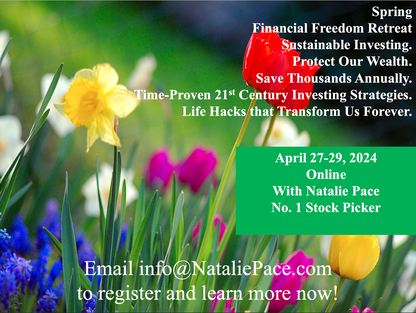 Join us for our Online Spring Financial Freedom Retreat. April 27-29, 2024. Email [email protected] or call 310-430-2397 to learn more. Register by Jan. 31, 2024 to receive the best price and a 50-minute complimentary private, prosperity coaching session (value $400). Click for testimonials, pricing, hours & details. 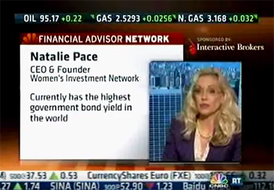 Natalie Wynne Pace is an Advocate for Sustainability, Financial Literacy & Women's Empowerment. Natalie is the bestselling author of The Power of 8 Billion: It's Up to Us and is the co-creator of the Earth Gratitude Project. She has been ranked as a No. 1 stock picker, above over 835 A-list pundits, by an independent tracking agency (TipsTraders). Her book The ABCs of Money remained at or near the #1 Investing Basics e-book on Amazon for over 3 years (in its vertical), with over 120,000 downloads and a mean 5-star ranking. The 5th edition of The ABCs of Money and the 2nd edition of Put Your Money Where Your Heart Is are the most recent releases of these books. Follow her on Instagram. Natalie Pace's easy as a pie chart nest egg strategies earned gains in the last two recessions and have outperformed the bull markets in between. That is why her Investor Educational Retreats, books and private coaching are enthusiastically recommended by Nobel Prize winning economist Gary S. Becker, TD AMERITRADE chairman Joe Moglia, Kay Koplovitz and many Main Street investors who have transformed their lives using her Thrive Budget and investing strategies. Click to view a video testimonial from Nilo Bolden. Check out Natalie Pace's Substack podcast on Apple and Spotify. Watch videoconferences and webinars on Youtube. Other Blogs of Interest Don't Reach for Yield. Closed-End Funds. 2024 Investor IQ Test. Answers to the 2024 Investor IQ Test. Apple's Woes Drag Down the Dow. The Winners & Losers of 2023. Ozempic, Magnificent 7 & Beyond. 2024 Crystal Ball. The Underperforming DJIA, Full of Fossil Fuels and Forever Chemicals. A Spectacular Year for 3 of the Magnificent 7. The Best ROI* (Almost 40%!) & 7 Life Hacks That Save Thousands. Portugal Eliminates Tax Advantages for Ex-Pats. Holiday Gift Giving on any Budget. Including No Budget. Once in a Century Events are Happening Every Day. The Crypto Winter Enters Its 3rd Year. Earn $50,000 or More in Interest. Safely. Finally. Freebies and Deals for Black Friday and Cyber Monday. Auto Strikes End. EV Price Wars Continue. WeWork's Bankruptcy. Half-Empty Office Buildings. Problems in our Personal Wealth Plan. Solutions for Unaffordable Housing. Cruise Ships Give Freebies to Investors. Should You Take the Bait? Should You Take a Cruise? Bonds. Banks. The Treacherous Landscape of Keeping Our Money Safe. 7 Rules of Investing Air B N Bust? Santa Rally 2023 or Time to Get Defensive? Barbie. Oppenheimer. Strikes. Streaming Wars. Netflix. Monero: A Token of Trust? 13 Lifestyle Choices to Reduce Waste, Pollution & CO2 & Save a Boatload of Dough. China Bans Apple 11-Point Green Checklist for Schools. Artificial Intelligence and Nvidia's Blockbuster Earnings Report Biotech in a Post-Pandemic World 10 Wealth Secrets of Billionaires and Royals. What Happened to Cannabis? Bank of America has $100 Billion in Bond Losses (on Paper) The USA AAA Credit Rating is on a Negative Watch. Lithium. Essential to EV Life. I'm Just Not Good at Investing. Investors Ask Natalie. Should I Buy an S&P500 Index Fund? Investors Ask Natalie. Bonds Lost More than Stocks in 2022. 2023 Company of the Year Do Cybersecurity Risks Create Investor Opportunities? Writers Strike, While Streaming CEOs Rake In Hundreds of Millions Annually. I Lost $100,000. Investors Ask Natalie. Artificial Intelligence Report. Micron Banned in China. Intel Slashes Dividend. Buffett Loses $23 Billion. Branson's Virgin Orbit Declares Bankruptcy. Insurance Company Risks. Schwab Loses $41 Billion in Cash Deposits. Fiat. Crypto. Gold. BRICS. Real Estate. Alternative Investments. BRICS Currency. Will the Dollar Become Extinct? The Online Global Earth Gratitude Celebration 7 Green Life Hacks Fossil Fuels Touch Every Part of Our Lives Are There Any Safe, Green Banks? 7 Ways to Stash Your Cash Now. Lessons from the Silicon Valley Bank Failure. Which Countries Offer the Highest Yield for the Lowest Risk? Solar, EVs, Housing, HSAs -- the Highest-Yield in 2023? Why We Are Underweighting Banks and the Financial Industry. 2023 Bond Strategy Emotions are Not Your Friend in Investing Bonds Lost -26%, Silver Held Strong. Save Thousands Annually With Smarter Energy Choices Is Your FDIC-Insured Cash Really Safe? Money Market Funds, FDIC, SIPC: Are Any of Them Safe? My 24-Year-Old is Itching to Buy a Condo. Should I Help Him? The 12-Step Guide to Successful Investing. The Bank Bail-in Plan on Your Dime. Rebalancing Your Nest Egg IQ Test. Answers to the Rebalancing Your Nest Egg IQ Test. Important Disclaimers Please note: Natalie Pace does not act or operate like a broker. She reports on financial news, and is one of the most trusted sources of financial literacy, education and forensic analysis in the world. Natalie Pace educates and informs individual investors to give investors a competitive edge in their personal decision-making. Any publicly traded companies or funds mentioned by Natalie Pace are not intended to be buy or sell recommendations. ALWAYS do your research and consult an experienced, reputable financial professional before buying or selling any security, and consider your long-term goals and strategies. Investors should NOT be all in on any asset class or individual stocks. Your retirement plan should reflect a diversified strategy, which has been designed with the assistance of a financial professional who is familiar with your goals, risk tolerance, tax needs and more. The "trading" portion of your portfolio should be a very small part of your investment strategy, and the amount of money you invest into individual companies should never be greater than your experience, wisdom, knowledge and patience. Information has been obtained from sources believed to be reliable. However, NataliePace.com does not warrant its completeness or accuracy. Opinions constitute our judgment as of the date of this publication and are subject to change without notice. This material is not intended as an offer or solicitation for the purchase or sale of any financial instrument. Securities, financial instruments or strategies mentioned herein may not be suitable for all investors. Don’t Reach for Yield. Investors ask Natalie About Closed-End Funds. Dear Natalie. I’m retired and I need to earn income on my investments. The stock newsletters that I subscribe to are promoting closed-end funds. I must admit the yield on BST, the Blackrock Science and Technology Trust (closed-end fund) looks amazing, at 8.75%! What do you think? Signed: Looking for more than 5% Dear Never Reach for Yield 😉: Closed-end funds offer a high yield. However, the yield is deceptive, because many people are not subtracting the fees… or factoring in the losses. Managed funds, like closed-end funds typically charge above 1%, which reduces the yield you are actually earning. However, that’s not the only way that you might be getting less money from closed-end funds then advertised. See below for some realities that many investors have sadly experienced firsthand in their cash-bleed wallets. Here are some of the Risks Loss of Principal Payout Cuts Thinly Traded. Illiquid Leverage Increases Risk & Losses Don’t Reach for Yield The Guggenheim Strategic Opportunities Fund (symbol: GOF) And here is more information on each one of those line items Loss of Principal The Blackrock Science and Technology closed-end fund, symbol BST, has lost almost half of its value over the past four years. The fund invests in a lot of the Magnificent 7. It boasts of yielding 8.68%. Subtract the fees of 1.11% and you’ve got a yield of 7.57% -- still not bad, especially since the fund value increased by 9.15% last year. However, if you purchased the fund in 2021, you’re still pretty far underwater, however. Meanwhile, the Magnificent 7 companies doubled in 2023, and even the more broad-based S&P500 scored 26% total return. Many of these mega, multi-national Magnificent 7 companies are trading at elevated price-earnings ratios. So, if BST increased only 9.15% in value when the companies were on fire, imagine how poorly it might perform if the share prices decline to more normal valuations. Payout Cuts Many closed-end funds promise aggressive yields to attract investors. However, if they are not able to make that money in income or capital gains, they have to sell assets in order to pay the dividend. Reducing their asset base means that they may have to cut the payout. That happened to a lot of CEFs in early 2023 after the bond and stock losses of 2022. Thinly Traded. Illiquid. Many closed-end funds tend to be very thinly traded – worse when they fall out of favor. Microsoft has a daily volume of 25 million. BST’s daily volume is just 118,000. If they have to cut their pay-out, even fewer people will be interested in buying the asset off of you, which means more losses when/if you sell. Leverage Increases Risk & Losses Most closed-end funds are highly leveraged. Leverage can work in our favor when the wind is at our back. However, as happened in 2022, when asset values tumble, the leverage causes them to plunge further, faster. With over half of the S&P500 at or near junk bond status, there is a lot of debt and leverage in the U.S. The higher the dividend, the higher the risk. Don’t Reach for Yield It’s better to receive a 4-5% interest rate and not lose money on the investment than it is to be told that you are earning a 5-7% (or higher) interest rate and lose principal. One of my coaching clients was told that his financial team had given him a wealth plan that was earning 5-7% annually and was protecting him from the losses in stocks. Both of those statements were untrue – and the truth was easily found on the actual brokerage statement! You might have heard that the S&P500 just hit an all-time high last Friday. Once the losses in his bonds and fees were factored in, his portfolio performance was just 1.8%. As you can see in the charts below, stocks were the best performer in 2023 by far with 26.3% total gains in the S&P 500. Stocks were the best performers over the last 10 and 30 years, as well. The Guggenheim Strategic Opportunities Fund (symbol: GOF) The Guggenheim Strategic Opportunities Fund is another closed-end fund that has lost a great deal of money over the past five years. If you’re just looking at the yield of 16.72%, you might get very excited. Here again, after factoring in expenses of 2.88% and 1-year losses of -19.40%, the picture becomes far less appealing. This fund is invested in long-term bonds, which were the worst performing assets of 2022, and were responsible for the bank failures of 2023. Long-term bonds are not easy to get rid of, as you can see in the liquidity chart below. So, this fund will likely continue to struggle. Bottom Line There are two sayings that come to mind. One is, “Never reach for yield.” The other was made famous by Will Rogers. He said, “I’m more concerned with the return of my money than the return on my money.” Many closed-end funds may look like they have a tasty yield. However, when you dig beneath the flashy bait, it’s not nearly as appetizing. If you’re willing to accept the above risks for reasons that only your extreme due diligence will reveal on the specific fund you’re interested in (not just thinking that you’re buying on a discount to “nav”), then it should be considered as a hot slice where you are taking on much higher risk in hopes of a higher gain. (As the case with BST, why not just have a hot slice of Magnificent 7 instead?) However, in general in today’s Debt World, closed-end funds are potentially illiquid, negative-yielding, risky offerings to avoid. 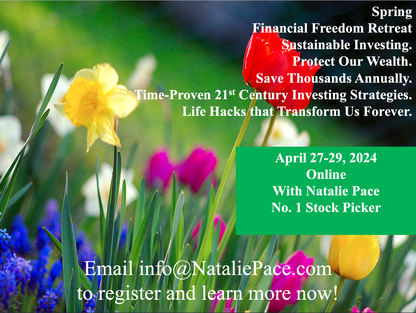 Join us for our Online New Year, New You Financial Freedom Retreat. Jan. 13-15, 2024. Email [email protected] or call 310-430-2397 to learn more. Register with friends and family to receive the best price. Click for testimonials, pricing, hours & details.  Join us for our Restormel Royal Immersive Adventure Retreat. March 8-15, 2024. Email [email protected] to learn more. Register with friends and family to receive the best price. Click for testimonials, pricing, hours & details. There is very limited availability, and you must register early to ensure that you get the exact room you want. This retreat includes an all-access pass to all of our online training for a full year for two and three 50-minute private, prosperity coaching sessions! 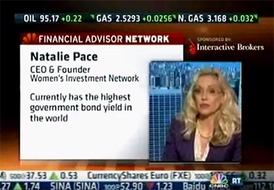 Natalie Wynne Pace is an Advocate for Sustainability, Financial Literacy & Women's Empowerment. Natalie is the bestselling author of The Power of 8 Billion: It's Up to Us and is the co-creator of the Earth Gratitude Project. She has been ranked as a No. 1 stock picker, above over 835 A-list pundits, by an independent tracking agency (TipsTraders). Her book The ABCs of Money remained at or near the #1 Investing Basics e-book on Amazon for over 3 years (in its vertical), with over 120,000 downloads and a mean 5-star ranking. The 5th edition of The ABCs of Money and the 2nd edition of Put Your Money Where Your Heart Is were released in 2021. Follow her on Instagram. Natalie Pace's easy as a pie chart nest egg strategies earned gains in the last two recessions and have outperformed the bull markets in between. That is why her Investor Educational Retreats, books and private coaching are enthusiastically recommended by Nobel Prize winning economist Gary S. Becker, TD AMERITRADE chairman Joe Moglia, Kay Koplovitz and many Main Street investors who have transformed their lives using her Thrive Budget and investing strategies. Click to view a video testimonial from Nilo Bolden. Check out Natalie Pace's Substack on Apple and Spotify. Watch videoconferences and webinars on Youtube. Other Blogs of Interest 2024 Investor IQ Test. Answers to the 2024 Investor IQ Test. Apple's Woes Drag Down the Dow. The Winners & Losers of 2023. Ozempic, Magnificent 7 & Beyond. 2024 Crystal Ball. The Underperforming DJIA, Full of Fossil Fuels and Forever Chemicals. A Spectacular Year for 3 of the Magnificent 7. The Best ROI* (Almost 40%!) & 7 Life Hacks That Save Thousands. Portugal Eliminates Tax Advantages for Ex-Pats. Holiday Gift Giving on any Budget. Including No Budget. Once in a Century Events are Happening Every Day. The Crypto Winter Enters Its 3rd Year. Earn $50,000 or More in Interest. Safely. Finally. Freebies and Deals for Black Friday and Cyber Monday. Auto Strikes End. EV Price Wars Continue. WeWork's Bankruptcy. Half-Empty Office Buildings. Problems in our Personal Wealth Plan. Solutions for Unaffordable Housing. Cruise Ships Give Freebies to Investors. Should You Take the Bait? Should You Take a Cruise? Bonds. Banks. The Treacherous Landscape of Keeping Our Money Safe. 7 Rules of Investing Air B N Bust? Santa Rally 2023 or Time to Get Defensive? Barbie. Oppenheimer. Strikes. Streaming Wars. Netflix. Monero: A Token of Trust? 13 Lifestyle Choices to Reduce Waste, Pollution & CO2 & Save a Boatload of Dough. China Bans Apple 11-Point Green Checklist for Schools. Artificial Intelligence and Nvidia's Blockbuster Earnings Report Biotech in a Post-Pandemic World 10 Wealth Secrets of Billionaires and Royals. What Happened to Cannabis? Bank of America has $100 Billion in Bond Losses (on Paper) The USA AAA Credit Rating is on a Negative Watch. Lithium. Essential to EV Life. I'm Just Not Good at Investing. Investors Ask Natalie. Should I Buy an S&P500 Index Fund? Investors Ask Natalie. Bonds Lost More than Stocks in 2022. 2023 Company of the Year Do Cybersecurity Risks Create Investor Opportunities? Writers Strike, While Streaming CEOs Rake In Hundreds of Millions Annually. I Lost $100,000. Investors Ask Natalie. Artificial Intelligence Report. Micron Banned in China. Intel Slashes Dividend. Buffett Loses $23 Billion. Branson's Virgin Orbit Declares Bankruptcy. Insurance Company Risks. Schwab Loses $41 Billion in Cash Deposits. Fiat. Crypto. Gold. BRICS. Real Estate. Alternative Investments. BRICS Currency. Will the Dollar Become Extinct? The Online Global Earth Gratitude Celebration 7 Green Life Hacks Fossil Fuels Touch Every Part of Our Lives Are There Any Safe, Green Banks? 7 Ways to Stash Your Cash Now. Lessons from the Silicon Valley Bank Failure. Which Countries Offer the Highest Yield for the Lowest Risk? Solar, EVs, Housing, HSAs -- the Highest-Yield in 2023? Why We Are Underweighting Banks and the Financial Industry. 2023 Bond Strategy Emotions are Not Your Friend in Investing Bonds Lost -26%, Silver Held Strong. Save Thousands Annually With Smarter Energy Choices Is Your FDIC-Insured Cash Really Safe? Money Market Funds, FDIC, SIPC: Are Any of Them Safe? My 24-Year-Old is Itching to Buy a Condo. Should I Help Him? The 12-Step Guide to Successful Investing. The Bank Bail-in Plan on Your Dime. Rebalancing Your Nest Egg IQ Test. Answers to the Rebalancing Your Nest Egg IQ Test. Important Disclaimers Please note: Natalie Pace does not act or operate like a broker. She reports on financial news, and is one of the most trusted sources of financial literacy, education and forensic analysis in the world. Natalie Pace educates and informs individual investors to give investors a competitive edge in their personal decision-making. Any publicly traded companies or funds mentioned by Natalie Pace are not intended to be buy or sell recommendations. ALWAYS do your research and consult an experienced, reputable financial professional before buying or selling any security, and consider your long-term goals and strategies. Investors should NOT be all in on any asset class or individual stocks. Your retirement plan should reflect a diversified strategy, which has been designed with the assistance of a financial professional who is familiar with your goals, risk tolerance, tax needs and more. The "trading" portion of your portfolio should be a very small part of your investment strategy, and the amount of money you invest into individual companies should never be greater than your experience, wisdom, knowledge and patience. Information has been obtained from sources believed to be reliable. However, NataliePace.com does not warrant its completeness or accuracy. Opinions constitute our judgment as of the date of this publication and are subject to change without notice. This material is not intended as an offer or solicitation for the purchase or sale of any financial instrument. Securities, financial instruments or strategies mentioned herein may not be suitable for all investors. 2024 Investor IQ Test Are you an Einstein in investing? A complete novice? Check your Investor IQ with the 26 questions below. If you score 22 correct answers or higher, then you’re in great shape! If you score 18, then you are C-level. Join us now at our next Financial Freedom Retreat to learn the life math that will save you thousands annually, earn money while you sleep and lead to generational wealth. Below 18 correct indicates that you are in real need of a basic course in life math. (Even math geniuses might not know the basics of Wall Street… We have a lot of financial professionals who attend our retreats!) So, consider joining us at our next Investor Educational Retreat.
Answers are listed in the article "Investor IQ Test Answers 2024" in my blog at NataliePace.com. https://www.nataliepace.com/blog/ Email info @ NataliePace.com or call 310-430-2397 if you have any questions about this test, or about the answers, or if you are interested in learning time-proven investing, budgeting, debt reduction, home buying solutions that will transform your life. Join us at our Jan. 13-15, 2024 New Year, New You Financial Freedom Retreat. Get valuable data and tools on how to best invest and monetize in real estate. Learn nest egg strategies, how to get hot and diversified (including in EVs, crypto and AI), and what's safe in a Debt World. You'll even discover how to save thousands annually with smarter big-ticket choices. Yes, it's a complete money makeover, which is a great way to start 2024! Email [email protected] to register. Learn the 15+ things you'll master and read testimonials in the flyer (link below) and on the home page at NataliePace.com. Register with friends and family to receive the best price. "Ten minutes into the first day I was already much smarter about investing than I ever thought I would be in my life and I knew I was in exactly the right place at this retreat. I am amazed at how EASY and FUN it is to make my money work for me and those I love. I think this kind of information should be compulsory in schools. I wish I'd learned this sooner." CM  Join us for our Online New Year, New You Financial Freedom Retreat. Jan. 13-15, 2024. Email [email protected] or call 310-430-2397 to learn more. Register with friends and family to receive the best price. Click for testimonials, pricing, hours & details.  Join us for our Restormel Royal Immersive Adventure Retreat. March 8-15, 2024. Email [email protected] to learn more. Register with friends and family to receive the best price. Click for testimonials, pricing, hours & details. There is very limited availability, and you must register early to ensure that you get the exact room you want. This retreat includes an all-access pass to all of our online training for a full year for two! 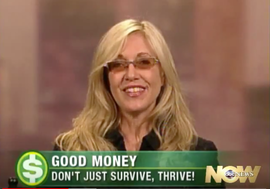 Natalie Wynne Pace is an Advocate for Sustainability, Financial Literacy & Women's Empowerment. Natalie is the bestselling author of The Power of 8 Billion: It's Up to Us and is the co-creator of the Earth Gratitude Project. She has been ranked as a No. 1 stock picker, above over 835 A-list pundits, by an independent tracking agency (TipsTraders). Her book The ABCs of Money remained at or near the #1 Investing Basics e-book on Amazon for over 3 years (in its vertical), with over 120,000 downloads and a mean 5-star ranking. The 5th edition of The ABCs of Money and the 2nd edition of Put Your Money Where Your Heart Is were released in 2021. Follow her on Instagram. Natalie Pace's easy as a pie chart nest egg strategies earned gains in the last two recessions and have outperformed the bull markets in between. That is why her Investor Educational Retreats, books and private coaching are enthusiastically recommended by Nobel Prize winning economist Gary S. Becker, TD AMERITRADE chairman Joe Moglia, Kay Koplovitz and many Main Street investors who have transformed their lives using her Thrive Budget and investing strategies. Click to view a video testimonial from Nilo Bolden. Important Disclaimers Please note: Natalie Pace does not act or operate like a broker. She reports on financial news, and is one of the most trusted sources of financial literacy, education and forensic analysis in the world. Natalie Pace educates and informs individual investors to give investors a competitive edge in their personal decision-making. Any publicly traded companies or funds mentioned by Natalie Pace are not intended to be buy or sell recommendations. ALWAYS do your research and consult an experienced, reputable financial professional before buying or selling any security, and consider your long-term goals and strategies. Investors should NOT be all in on any asset class or individual stocks. Your retirement plan should reflect a diversified strategy, which has been designed with the assistance of a financial professional who is familiar with your goals, risk tolerance, tax needs and more. The "trading" portion of your portfolio should be a very small part of your investment strategy, and the amount of money you invest into individual companies should never be greater than your experience, wisdom, knowledge and patience. Information has been obtained from sources believed to be reliable. However, NataliePace.com does not warrant its completeness or accuracy. Opinions constitute our judgment as of the date of this publication and are subject to change without notice. This material is not intended as an offer or solicitation for the purchase or sale of any financial instrument. Securities, financial instruments or strategies mentioned herein may not be suitable for all investors. Answers to the 2024 Investor IQ Test. by Natalie Pace. If you score 21 correct answers or higher, then you’re in great shape! If you score 18, then you are C-level. Join us now at our next Financial Freedom Retreat to learn the life math that will save you thousands annually, earn money while you sleep, activate a much richer life, and lead to generational wealth. Below 18 correct indicates that you are in real need of a basic course in life math. (Even Ph.D.s and math geniuses might not know the basics of Wall Street… We have a lot of well-educated and financial professionals who attend our retreats!) So, consider joining us at our next Investor Educational Retreat. Our time-proven 21st Century strategies are enthusiastically recommended by Nobel Prize-winning economist Gary Becker, former TD AMERITRADE chairman and CEO Joe Moglia, McArthur Genius Award winning economist Kevin Murphy and thousands of Main Street investors. So, consider joining us at our next Investor Educational Retreat. 1. What is the most important question you should ask your Certified Financial Advisor before hiring him/her? "How much of my portfolio should I keep safe?" This question will help you to determine whether you are dealing with a trusted professional who is looking after your best interest, or a salesman who is looking to make a quick buck. The answer to this question is, "A percentage equal to your age.” As stocks are trading at elevated prices, bonds are carrying duration and credit risk, which can make them illiquid and negative-yielding, it would be even better if s/he adds, “But given the valuation and leverage concerns, we might consider overweighting into safety." If they just sidestep this question and redirect you to a risk tolerance questionnaire, that is a red flag. If they tell you not to worry because things always work out in the end, that it a sure sign that you are adopting the Buy & Hope plan, which wipes investors out in recessions – something that is never ideal, but can be devastating as we get closer to retirement. One more important thing. Since many long-term bonds are highly leveraged, subject to credit risk, vulnerable to capital loss and can be illiquid to boot, we need to know what’s safe in a Debt World, rather than just rely upon bonds, annuities or money market funds. Now is the time to clearly know exactly what we own and why. Consider getting an unbiased 2nd opinion. Call 310-430-2397 or email [email protected] for pricing and details. 2. What are 3 red flags that your financial plan is on a Wall Street rollercoaster and at risk of losing half or more of its value?
3. How much of your nest egg should you keep safe? A percentage equal to your age. Consider overweighting more into safety when assets are overpriced, the economy is weak, or you are nervous. Again, in today’s Debt World, it is important to know what’s safe. Long-term bonds are losing value and are illiquid, which makes them substantially riskier than most investors realize. (Our safe side isn’t supposed to lose money!) Money market funds can have liquidity fees, are vulnerable to capital loss and are not FDIC-insured. Annuities are more vulnerable than most investors know because insurance companies are carrying a great deal of risk and leverage, can have hidden fees and terms that mute performance, and annuities are not federally insured. 4. What's safe? You might consider short-term, creditworthy FDIC-insured CDs, Treasury Bills or bonds. Rolling, short-term maturity dates ensure that we have access and liquidity in case another investment opportunity arises, and protects us from duration risk. Read the fine print. Be cautious about extending duration beyond a few years. Factor in the credit risk. Hard assets will hold their value better than paper assets in a Debt World. So, the mantra “safe, income-producing hard assets that you purchase for a good price” is another good option. Real estate is at an all-time high in the U.S., so it will be difficult to purchase for a good price in 2024. There are some hard assets that offer the best ROI by reducing our monthly expenses (for life), which we cover at the Financial Freedom Retreat, and in our blogs and videoconferences. You don’t want to be all in on hard assets because you also need liquidity and cash flow. We spend one full day on What’s Safe at the Investor Educational Retreats. Educate yourself now on the best income-producing hard assets that are right for you, so that when prices are more attractive, you know what you want and have the means to take action and close the deal. Call 310-430-2397 to learn more. Everyone is hoping that interest rates will start getting cut in the 2nd half of 2024. However, the expectation is for the Fed Fund rate to remain in the range of 4.6%. So, hoping for relief soon in interest rates might be a pipedream. There may be work-arounds, however. 5. What is the average return of stocks over the last 10 and 30 years? Large cap stocks earned 12.03% annualized over the last decade and 10.15% over the 30-year period (source: Morningstar). Small cap stocks performed at 8.06% and 10.68%, respectively. (Asset performance graphs, and more data and resources, are distributed to Retreat Attendees.) 6. What is the average return of gold over the last 10 and 30 years? Gold returned 4.70% annualized over the 10-year period and 5.33% over the last 30 years. Gold mining stocks doubled in 2016, were flat in 2017, and doubled (again) off their 2018 lows by August 2020. Regular rebalancing (1-3 times a year) prompts us to trim high and add low. The all-time high for gold of $2,146.79 was hit on Dec. 3, 2023. The previous high of $1,895/ounce in gold in September of 2011, occurred the month after S&P Global Ratings stripped the U.S. of its AAA credit score. That was in the wake of a Congress/White House showdown over the Debt Ceiling. No one panicked when Fitch Ratings downgraded the U.S. on Aug. 2, 2023. However, that could change. 7. What is the average return of real estate over the last 10 and 30 years? Over the last decade, real estate has performed at an impressive 8.6% annualized. However, there were devastating losses during the Great Recession, when over 20 million homes were foreclosed on. The losses are not reflected in the 10-year statistic. Over a 30-year period, real estate increased 8.3% annualized. Real estate prices are at an all-time high. Housing is largely unaffordable. According to AttomData, average income-earners would have to spend a third or more to buy a home. Rising interest rates have made this problem a crisis. 2.5% of U.S. homes are still seriously underwater on their mortgage – even with prices higher than ever. (This is largely due to loan mods.) Homeowners are significantly wealthier than renters. So, this is definitely something to aspire to. However, there is nothing worse than buying high in real estate, and watching the value of your home sink below the amount that you owe on it! It can ruin your life and FICO score for years, if not decades. Be sure to read the Real Estate section of the 5th edition of The ABCs of Money. There are at least seven real-world case studies to inform your real estate decisions. We offer time-proven, out-of-the-box, real estate solutions in our master classes and private coaching. Email [email protected] for additional information. There is always a way to move toward our goals in a prudent manner. 8. What was the top performing investment in 2023? Bitcoin started the year in the $16,000/coin range and then rocketed up to $42,231 by Dec. 31, 2023 for gains of 171%. The high for Bitcoin is $69,000/coin. The volatility is crypto is problematic for HODL. Our pie chart system with regular rebalancing puts us on the right side of the trade. (This strategy is featured on at our Financial Freedom Retreats.) Large stocks performed quite well, with gains of 26% (source: Morningstar Direct). However, most of those gains were concentrated in the Magnificent 7, with the Dow Jones Industrial Average performing at half that speed, with gains of just 13.7%. Oil was one of the few assets that lost money in 2023, something that helped consumers keep spending. Even with high interest rates, real estate housing prices gained 4%. 9. How long will it take for you to have a nest egg as big as your annual salary if you put 10% of your income into a tax-protected (and financial predator proof) individual retirement plan and invest in stocks and bonds*? 7 ½ years. This is based upon 10% average annualized returns of stocks and bonds over a 30-year period, which is what happens in a normal economy. 10. How long will it take for your nest egg to earn more than you earn, if you put 10% of your income into a tax-protected (and financial predator proof) individual retirement plan and invest in stocks and bonds*? 25 years. This is based upon 10% average annualized returns of stocks and bonds over a 30-year period, which is what happens in a normal economy. 11. What’s the safest investment in a slow-growth, high-debt world? Bonds are starting to reward investors. However, avoiding the losses and illiquidity is tricky, unless you are quite well-informed (not just having blind faith that someone else is protecting you). FDIC-insured CDs are paying in the 5% range. However, you have to know the loopholes and read the fine print. Due to the poor credit quality of many banks, I’d still adhere to a short-term, creditworthy policy. Hard assets hold their value better than paper assets when there is too much paper floating around (debt, like there is today). So, if you have a home or income-producing assets with equity, think twice (and consider private coaching) before turning your hard asset into paper money. At the same time, being real estate rich and cash poor can make us vulnerable, as we still need liquidity. The safe side has opportunity and money pits, which is why we spend one full day on this topic at our Investor Educational Retreats. I hosted a Bond Master Class in October of 2023. Email [email protected] if you’re interested in receiving access to the recording of the class. There are some excellent safe, income-producing, value-priced hard assets that are worth considering now, which most people are not aware of. Many hard assets are overpriced right now. If you are equity-rich, you still want to do the analysis to make sure that will remain the case if real estate asset prices decline significantly in value, as they did in the Great Recession. Be sure to read the Real Estate section of the 5th edition of The ABCs of Money. In addition to looking for some return on the safe side, think capital preservation. Liquidity will allow us to buy low when things are on sale. 2024 will allow us to do both, if we’re strategic about keeping the terms short and the creditworthiness high. 12. Which countries hold the most gold? The United States is the top holder of gold worldwide, by far, with 8,133.5 tons, followed by Germany, all ETFs, the International Monetary Fund, Italy, France, Russia and China. China and Russia have been on a gold buying spree since 2008. Both countries increased their holdings in 2023. Reports are that they are trading oil and other commodities using their own currency backed by gold, in an effort to break free from the dollar hegemony. BRICS (Brazil, Russia, India, China and South Africa) have launched their own currency. India also increased their gold holdings. 13. Are annuities safe? Insurance products, including life insurance and annuities, aren't insured by the FDIC. If we had not bailed out AIG in 2007, more than 50 million annuity holders would have been in real trouble. Your annuity product is only as safe as the insurance company that is selling it to you. Insurance companies don’t fare well in recessions, historically. Insurance products are like being a renter. If you can’t pay, you get tossed out. Many people pay for life insurance their entire working life, and then can’t pay when they retire – when they are really most in need. If you put that money into your own tax protected account, you could save on taxes, compound your gains, and it would be there for you when you retire, even offering some income, in addition to the capital. (Billionaire Peter Thiel reportedly has over $4 billion in his Roth IRA. Regular contributions, investing and compounding gains are that powerful.) When you can no longer contribute to your own retirement plan and Health Savings Account, they support you. We can be the boss of our wealth, once we learn The ABCs of Money that we all should have received in high school and college. Once we know what we own and invest in, and why, we can stop making everyone else rich and start living a richer life. 14. What were the top performing and the worst months for stocks over the past five years? November, July, April and October performed the best over the 5-year period (in that order), on average. September, February, March and May were all negative months. Retreat Attendees receive charts of the top-performing months and election year trends. If you’re interested in learning more about our 3-day, life transformational investor educational retreats, call 310-430-2397 or email [email protected]. 15. What was the top performing quarter for stocks over the past twenty years? October through December – the Santa Rally – performed the best over the 20-year period, but saw greater volatility than normal, particularly in December. December 2018 was the worst performing December in history, with losses of -9.2%. Understanding seasonal trends can help us with our annual rebalancing in our nest egg, and with our selling strategy for trading. We’ll be hosting a Rebalancing Master Class on Jan. 20, 2024. Regular rebalancing is a very important part of our nest egg strategy. We spend one full day on what’s hot, teaching how to identify the best investments of the year, in our Investor Educational Retreats. (The retreat is a prerequisite for the Rebalancing Master Class.) 16. What was the worst investment in 2023, NASDAQ, gold, the Dow Jones Industrial Average, bonds, cannabis, oil or real estate? Cannabis and plant-based protein continued to scrape the bottom of Wall Street. Oil prices dropped -37.93%. Bonds were pretty poor performers, and haven’t recovered the devastating drop of 2022. Stay tuned into my blogs, Instagram broadcast channel, podcasts and videoconferences for ongoing news, analysis and vital investor information. Email [email protected] with VIDEOCON in the subject line to receive the logon information for the next monthly videoconference. 17. Which year is expected to perform better, 2024 or 2025, based upon historical returns of election years? 2024 is an election year. Election years can be good, with an average 12.9% gain over the 10-year period. However, we’ve seen some disasters, such as 2008 (Great Recession) and 2000 (beginning of the Dot Com Recession). Over the last 10-20 years, election and mid-term years have been the worst performers in the election-year cycle. U.S. stocks are still quite pricey, which could mute gain possibilities this year, as could slow GDP growth. A mild recession is forecasted for 2024, possibly in the first half of the year. (We’ll know more on April 25, 2024, when the advance GDP for the 1st quarter of 2024 is published by the Bureau of Economic Analysis.) As you can see in the CAPE ratio below (Nobel Prize winning economist Robert Shiller’s stock valuation tool), the only two times that stocks were more expensive than they are now were during the Dot Com Recession and the Great Depression. Having expensive stocks, unaffordable real estate, and higher interest rates than we’ve had in 15 years, as government support is easing back and credit is still tight, has increased the potential for volatility on Wall Street. There have been wild rides over the past five years. This is likely to continue as the hot and fast Wall Street whales seek to gobble up incremental gains. 18. How many companies are in the Dow Jones Industrial Average? 30 companies. Many are household brands. Most have been around for over half a century, and many are carrying far more debt than the value of the company. As I mentioned previously, the DJIA is underperforming the S&P500 by almost half. Leverage has begun to concern economists. Over 50% of the S&P500 corporate bonds are at the lowest rung of investment grade, or at junk bond status. This includes a lot of banks, brokerages, financial services and insurance companies. If you don’t understand how much debt corporations are holding, you can learn how to use this valuable tool to increase the performance of your nest egg on the 2nd day of the Investor Educational Retreat. Click to access the names of the 30 companies. The Dow Jones Industrial Average was launched in 1896. 19. How many Dow Jones Industrial Average companies were bailed out or went bankrupt in the Great Recession? Most people don't realize that 20% of the companies of the DJIA (6 companies: AIG, American Express, Bank of America, Citi, JP Morgan and General Motors) were bailed out or went bankrupt in the Great Recession. Others, like General Electric and Ford, received support. The DJIA was the leading bailout index in the Great Recession. Learn more about how to add in performance and avoid the bailouts in your funds and retirement account at the Investor Educational Retreat and in The ABCs of Money. Due to debt and leverage, it is important to remember that the higher the dividend is, the higher the risk likely is (read the chapter of the same name in The ABCs of Money for additional information). GE investors learned this the hard way in 2017. Many REIT investors are learning it now, particularly those invested in commercial real estate. 20. Which index has performed better over the last 5 years, the Dow Jones Industrial Average or the NASDAQ Composite Index? As you can see in the chart below, the NASDAQ has outperformed the DJIA. At the same time, the DJIA tends to be less volatile. This is why our pie chart system includes both value (substitutions*, rather than the DJIA) and growth (NASDAQ), as well as regular rebalancing. Using this system, investors can capture gains in technology and biotechnology at the high, and buy low when recessions and other economic shocks create opportunities. Learn more at the Investor Educational Retreat and in The ABCs of Money. *We are leaning into country diversification in our value funds, due to the leverage and slow growth in the DJIA. 21. How much did investors lose between February 19, 2020 and March 23, 2020? Both the Dow Jones Industrial Average and the NASDAQ Composite Index dropped 35%. Some of the hottest stocks, including Nvidia (-38%), lost even more. However, technology stocks surged, once everyone started working and doing everything from home. 2020 gained 16.26%, with 2021 scoring 26.89% gains in the S&P500. 22. How much did investors lose during the Great Recession and the Dot Com Recession? As I mentioned above, the Dow Jones Industrial Average lost 55% in the Great Recession. The Dot Com Recession saw a drop in the NASDAQ Composite Index of up to 78%. It took the NASDAQ 15 years to crawl back to even. As you can see in both charts, if you wait for the recession announcement, you've already lost almost half (or more) of your wealth. We can’t afford to lose more than half and then take 7-15 years to crawl back to even – particularly if you are over the age of 50. It’s time to step off of the Wall Street Rollercoaster and into time-proven, easy systems that protect our wealth, while outperforming the major indices. These strategies cost less time and money, and allow us to sleep better at night, knowing that our wealth is protected. 23. Does Buy & Hope work? If not, what does? Buy & Hope lost more than half in 2000 and 2008 and 35% (or more) between February and March of 2020. Due to the amount of debt and leverage, and the slow rate of growth, Buy and Hold will not work going forward (until those problems are dealt with and cycled through). Our easy-as-a-pie-chart nest egg strategies with regular rebalancing earned gains in the Dot Com and Great Recessions and have outperformed the bull markets in between. Working off of the pie charts, instead of the brokerage statement, allows us to take the emotions out of the plan, and rely, instead, upon a time-proven system. This pie chart system, with annual rebalancing, is a buy low, sell high plan on auto-pilot – prompting us to do what we should be doing at each rebalancing session. Email [email protected] or call 310-430-2397, if you’d like to customize your own sample pie chart (free) or receive an unbiased 2nd opinion through our private coaching program. (We teach you how to do this yourself at the Investor Educational Retreat and at the Rebalancing Master Class.) One more thing: low interest rates create asset bubbles. (We’ve only had 5% interest rates for less than a year.) That is one of the reasons why assets drop so severely and swiftly in 21st Century recessions. Having the right amount safe and knowing what is safe in a Debt World is our best protection. 24. Why is it that so many investors are unable to Buy Low and Sell High? Buy low, sell high is a mantra that everyone knows. So, why do so few investors do it? There are a few reasons…
25. What is the 3-Ingredient Recipe for Cooking up Profits? 1. Start with what you know and love 2. Pick the Leader 3. Buy low; sell high (easy to say; hard to do) This recipe, along with my Stock Report Card, Four Questions, market strategies and data drilling, is how I earned the ranking of number one stock picker. The recipe is easy. Learning how to use these tools requires practice. You must begin by locating and analyzing data, which is actually less time and far more informative than reading blogs, which have a fraction of the information and might be written by a novice. Come to our next Investor Educational Retreat to learn firsthand how easy and effective this strategy is, and why it has worked through bull and bear markets for more than two decades now. Call 310-430-2397 or email [email protected] to learn more. If you don’t like stock picking, no problem. Our easy-as-a-pie-chart nest egg strategy is designed for money while you sleep. Once you set up your financial house properly, you’ll just need to Spring Clean it once or twice a year. 26. What are the Four Questions for Picking Winning Stocks? The Four Questions for Picking Winning Stocks. 1. What’s the product? 2. Who’s the customer? 3. Can the company continue to make a superior product going forward and get it to their customer at the best price before the competition? 4. Who’s the CEO and can s/he motivate the employees to make the best product faster, better and cheaper than the competition? As you can see, three out of four questions can be answered by being a good customer of the company. The 3rd question will benefit from you completing a Stock Report Card, and understanding how to use the data (something we teach on Day 2 of our Financial Freedom Retreat). So, the more you know about a company (ingredient #1 of the recipe for Cooking Up Profits), the easier it is to pick the leader. In Put Your Money Where Your Heart Is, I used these questions and tools to compare two companies. Google scored an A (in 2006, when it had only been publicly traded for 2 years). The Dow Component that I gave a D- to went on to declare bankruptcy a few years after this prediction was made (General Motors). Using the Stock Report Card and 4 Questions, I identified both of these trends years before these major events occurred. The book was written in 2006, three years before GM went bankrupt. In fact, I applauded Google on national television before its IPO, when most pundits pooh-poohed it. This is the power of asking the right questions and relying upon the data, rather than just listening to the mainstream media. (We also warned about General Electric years before it was booted from the DJIA. This was also evident in the data, but not in the headlines) So, are you an Einstein in investing? A complete novice? If you scored 21 correct answers or higher, then you’re in great shape! If you scored 18 right, then you are C-level. (Come to our next retreat to proceed up the path to financial wisdom!) Below 18 correct indicates that you are in desperate need of a basic course in life math, which will transform your life and relationship with money. (Email [email protected] to start with one of our free videocoaching courses in Prosperity/Abundance, Debt Reduction, Sustainability or the Thrive Budget.) Call 310-430-2397 or email [email protected] to learn more. The High Cost of Free Advice A few years ago, our team was told yet another story about someone who lost a substantial amount of money by trusting the "free" advice of a financial advisor. Learn the truth about commissions & conflicts of interest & how to get a 2nd opinion now in the guest blog “They Trusted Him. Now He Doesn’t Return Phone Calls.” Know what you own. Protect your future now! Data Sources: (c) 2024 Morningstar Direct, S&P Dow Jones Indices, the World Gold Council and The National Association of Realtors. All rights reserved. Used with permission. The information contained herein: (1) is proprietary; (2) may not be copied or distributed; and (3) is not warranted to be accurate, complete, or timely. Neither Morningstar, the National Association of Realtors, the World Gold Council, Natalie Pace, nor any content providers are responsible for any damages or losses arising from any use of this information. Past performance is no guarantee of future results. Join us at our Jan. 13-15, 2024 New Year, New You Financial Freedom Retreat. Get valuable data and tools on how to best invest and monetize in real estate. Learn nest egg strategies, how to get hot and diversified (including in EVs, crypto and AI), and what's safe in a Debt World. You'll even discover how to save thousands annually with smarter big-ticket choices. Yes, it's a complete money makeover, which is a great way to start 2024! Email [email protected] to register. Learn the 15+ things you'll master and read testimonials in the flyer (link below) and on the home page at NataliePace.com. Register with friends and family to receive the best price. "Ten minutes into the first day I was already much smarter about investing than I ever thought I would be in my life and I knew I was in exactly the right place at this retreat. I am amazed at how EASY and FUN it is to make my money work for me and those I love. I think this kind of information should be compulsory in schools. I wish I'd learned this sooner." CM  Join us for our Online New Year, New You Financial Freedom Retreat. Jan. 13-15, 2024. Email [email protected] or call 310-430-2397 to learn more. Register with friends and family to receive the best price. Click for testimonials, pricing, hours & details.  Join us for our Restormel Royal Immersive Adventure Retreat. March 8-15, 2024. Email [email protected] to learn more. Register with friends and family to receive the best price. Click for testimonials, pricing, hours & details. There is very limited availability, and you must register early to ensure that you get the exact room you want. This retreat includes an all-access pass to all of our online training for a full year for two! 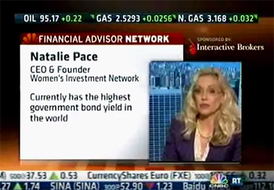 Natalie Wynne Pace is an Advocate for Sustainability, Financial Literacy & Women's Empowerment. Natalie is the bestselling author of The Power of 8 Billion: It's Up to Us and is the co-creator of the Earth Gratitude Project. She has been ranked as a No. 1 stock picker, above over 835 A-list pundits, by an independent tracking agency (TipsTraders). Her book The ABCs of Money remained at or near the #1 Investing Basics e-book on Amazon for over 3 years (in its vertical), with over 120,000 downloads and a mean 5-star ranking. The 5th edition of The ABCs of Money and the 2nd edition of Put Your Money Where Your Heart Is were released in 2021. Follow her on Instagram. Natalie Pace's easy as a pie chart nest egg strategies earned gains in the last two recessions and have outperformed the bull markets in between. That is why her Investor Educational Retreats, books and private coaching are enthusiastically recommended by Nobel Prize winning economist Gary S. Becker, TD AMERITRADE chairman Joe Moglia, Kay Koplovitz and many Main Street investors who have transformed their lives using her Thrive Budget and investing strategies. Click to view a video testimonial from Nilo Bolden. Check out Natalie Pace's Substack on Apple and Spotify. Watch videoconferences and webinars on Youtube. Other Blogs of Interest Apple's Woes Drag Down the Dow. The Winners & Losers of 2023. Ozempic, Magnificent 7 & Beyond. 2024 Crystal Ball. The Underperforming DJIA, Full of Fossil Fuels and Forever Chemicals. A Spectacular Year for 3 of the Magnificent 7. The Best ROI* (Almost 40%!) & 7 Life Hacks That Save Thousands. Portugal Eliminates Tax Advantages for Ex-Pats. Holiday Gift Giving on any Budget. Including No Budget. Once in a Century Events are Happening Every Day. The Crypto Winter Enters Its 3rd Year. Earn $50,000 or More in Interest. Safely. Finally. Freebies and Deals for Black Friday and Cyber Monday. Auto Strikes End. EV Price Wars Continue. WeWork's Bankruptcy. Half-Empty Office Buildings. Problems in our Personal Wealth Plan. Solutions for Unaffordable Housing. The Magnificent 7 Drag NASDAQ into Another Correction Cruise Ships Give Freebies to Investors. Should You Take the Bait? Should You Take a Cruise? Bonds. Banks. The Treacherous Landscape of Keeping Our Money Safe. 7 Rules of Investing Air B N Bust? Santa Rally 2023 or Time to Get Defensive? Barbie. Oppenheimer. Strikes. Streaming Wars. Netflix. Monero: A Token of Trust? 13 Lifestyle Choices to Reduce Waste, Pollution & CO2 & Save a Boatload of Dough. China Bans Apple 11-Point Green Checklist for Schools. Artificial Intelligence and Nvidia's Blockbuster Earnings Report Biotech in a Post-Pandemic World 10 Wealth Secrets of Billionaires and Royals. What Happened to Cannabis? Bank of America has $100 Billion in Bond Losses (on Paper) The USA AAA Credit Rating is on a Negative Watch. Lithium. Essential to EV Life. I'm Just Not Good at Investing. Investors Ask Natalie. Should I Buy an S&P500 Index Fund? Investors Ask Natalie. Bonds Lost More than Stocks in 2022. 2023 Company of the Year Do Cybersecurity Risks Create Investor Opportunities? Writers Strike, While Streaming CEOs Rake In Hundreds of Millions Annually. I Lost $100,000. Investors Ask Natalie. Artificial Intelligence Report. Micron Banned in China. Intel Slashes Dividend. Buffett Loses $23 Billion. Branson's Virgin Orbit Declares Bankruptcy. Insurance Company Risks. Schwab Loses $41 Billion in Cash Deposits. Fiat. Crypto. Gold. BRICS. Real Estate. Alternative Investments. BRICS Currency. Will the Dollar Become Extinct? The Online Global Earth Gratitude Celebration 7 Green Life Hacks Fossil Fuels Touch Every Part of Our Lives Are There Any Safe, Green Banks? 7 Ways to Stash Your Cash Now. Lessons from the Silicon Valley Bank Failure. Which Countries Offer the Highest Yield for the Lowest Risk? Solar, EVs, Housing, HSAs -- the Highest-Yield in 2023? Why We Are Underweighting Banks and the Financial Industry. 2023 Bond Strategy Emotions are Not Your Friend in Investing Bonds Lost -26%, Silver Held Strong. Save Thousands Annually With Smarter Energy Choices Is Your FDIC-Insured Cash Really Safe? Money Market Funds, FDIC, SIPC: Are Any of Them Safe? My 24-Year-Old is Itching to Buy a Condo. Should I Help Him? The 12-Step Guide to Successful Investing. The Bank Bail-in Plan on Your Dime. Rebalancing Your Nest Egg IQ Test. Answers to the Rebalancing Your Nest Egg IQ Test. Important Disclaimers Please note: Natalie Pace does not act or operate like a broker. She reports on financial news, and is one of the most trusted sources of financial literacy, education and forensic analysis in the world. Natalie Pace educates and informs individual investors to give investors a competitive edge in their personal decision-making. Any publicly traded companies or funds mentioned by Natalie Pace are not intended to be buy or sell recommendations. ALWAYS do your research and consult an experienced, reputable financial professional before buying or selling any security, and consider your long-term goals and strategies. Investors should NOT be all in on any asset class or individual stocks. Your retirement plan should reflect a diversified strategy, which has been designed with the assistance of a financial professional who is familiar with your goals, risk tolerance, tax needs and more. The "trading" portion of your portfolio should be a very small part of your investment strategy, and the amount of money you invest into individual companies should never be greater than your experience, wisdom, knowledge and patience. Information has been obtained from sources believed to be reliable. However, NataliePace.com does not warrant its completeness or accuracy. Opinions constitute our judgment as of the date of this publication and are subject to change without notice. This material is not intended as an offer or solicitation for the purchase or sale of any financial instrument. Securities, financial instruments or strategies mentioned herein may not be suitable for all investors. Is Huawei the Apple of China’s Eye? Apple is down 5.9% in the first four days of trading in 2024 – dragging Wall Street down with it. Is this just strategic profit-taking by Wall Street whales, or is there more at stake? Is the Huawei hype justified? What about China’s ban of iphones in government? Another potential problem is that The New York Times and multiple other outlets are reporting that the U.S. Dept. of Justice is ready to file a “sweeping antitrust suit” against Apple. In this blog, we’ll examine: China and Huawei 2023 Worldwide Smart Phone Sales Nothing: the Hot, Hyped New Phone 2024 Smart Phone Forecasts Streaming and Services Macs and iPads Corporate Buybacks And here is more information on each point. China As we reported on September 7, 2023, China has banned the use of iPhones at government agencies and for any government business. (The U.S. did this to Huawei in 2017, and expanded their attack on the company over the next few years – even having Canada arrest Huawei’s CFO in December of 2018.) During the same week of the iPhone ban in China, Huawei shocked the West by releasing their Mate 60 series made with domestic chips. (Huawei had been blacklisted from U.S. chips.) The concern is that Huawei will quickly outcompete iOS in China (and beyond), just as the company did before being banned by the U.S. TechInsights forecasts that Huawei’s HarmonyOS will surpass Apple’s iOS in China this year, taking second place behind Android. This has a bit of déjà vu to it. Apple missed earnings in the December quarter of 2018 largely due to weak sales in China and aggressive competition from Huawei. At the time, Huawei was the #2 global smartphone company (by units), behind #1 Samsung, and followed by #3 Oppo. Apple dropped to #4 by devices sold (but ranks higher in revenue). According to Counterpoint Research, Huawei experienced double-digit revenue growth in the 3rd quarter of 2023. 4Q 2023 sales data should be available from IDC next week. The reviews of Huawei’s chips and phone have been top-notch – even those by Western media. That has Apple investors concerned, particularly since the company is sporting a high price-earnings ratio of 30, while at the same time reporting an annual decline in revenue of $648 million in the September 2023 quarter (a small, but meaningful -0.72%). The greatest area of weakness was in China, where revenue was down $386 million from a year ago (-2.5%). Apple’s CFO pointed out that the decline was due to foreign exchange, with sales actually up slightly using constant currency. While Apple CEO Tim Cook was quite vague about expectations for sales in China for the December quarter, he did admit in the Nov. 2, 2023 earnings call that predictions were for the market to contract. We’ll know the details when Apple reports their December quarter earnings at the end of Jan./early Feb. Revenue in Greater China accounted for 17% of Apple’s revenue in the September quarter of 2023, so weakness akin to what happened in 2018 might require the company to revise its outlook. The company might also curtail its share repurchase program leading up to the quiet period before their earnings release, as they did in December of 2018. This could be a problem for Wall Street. In December of 2018 when Apple stopped their share repurchases, stocks experienced the worst December since the Great Depression, with losses of -9.18% in the S&P500 (source: S&P Dow Jones Indices). 2023 Worldwide Smart Phone Sales So, which companies are the top-selling smart phone brands today? Apple continues to be the premium market’s undisputed leader, according to a report released by Counterpoint Research on Jan. 2, 2024. However, Android has a much larger market share than iOS, and Samsung continues to be the #1 smartphone brand by devices. Nothing: the Hyped, Hot New Phone Apple customers tend to be very loyal, even when products are priced much lower. Nothing, a company GQ calls the “most hyped company in years,” has sold over two million products since launching in 2020. Their Android-based phone is priced at just $599, while the iPhone 15 Pro retails for $999. A friend recently purchased the Nothing phone when his iPhone stopped working. When I asked him how he liked it, he responded that “Apple is still the best. I'll probably go back to iPhone whenever this dies.” Perhaps this is why the global premium smartphone market increased 6% year over year, compared to a decline in the general marketplace. Payment plans allow more people to choose the phone they prefer, even if it costs a lot more. 2024 Smart Phone Forecasts Global sales are projected to decline -3.5% in 2023, and improve slightly next year with year-over-year growth of 3.8%. The 4th quarter of 2023 is expected to show growth of 7.3% over the same period in 2022. While this is all good news, investors are forward-thinking, and will be keen to know if Huawei will be the new Apple of China’s eye. The next few weeks will reveal a great deal. China is certainly trying to curtail Apple’s influence in the country. However, Apple had the top four selling phones in urban China last year, according to CEO Tim Cook. Reports from my family and business colleagues in Hong Kong are that everyone is still in love with all things Apple. In the September 2023 quarter earnings call, Cook said, “I just took a trip over there and could not be more excited about the interactions I had with the customers and employees and others.” Of course, Cook wasn’t able to meet with President Xi Jingping during his trips to China in 2023. The Huawei Wars have undoubtedly hampered their relationship. Meanwhile, President Xi praised Bill Gates in a meeting in Beijing on June 16, 2023, calling him “an old friend.” Streaming and Services iPhone accounts for almost half of all Apple revenue, at 49%. However, a surprising second is their services category with a 25% share. The services category includes Apple TV+, Music, apps, AppleCare, iCloud and more. While Apple TV isn’t displacing Hulu, Disney+ or the plethora of platforms that are all starting to charge for streaming, the studio has made impressive strides. Ted Lasso was a darling of Emmys and audiences, while Martin Scorsese's Killers of the Flower Moon secured 7 Golden Globes nominations, including Best Motion Picture (Drama). Coda, another Apple release, won Best Picture at the 2022 Academy Awards. Macs and iPads Mac and iPad both experienced noteworthy revenue declines in the September quarter of 2023, at -34% and -10.2%, respectively. According to IDC, global sales of personal computing devices declined 9.9% in Q3 of 2023. The IDC press release explained why Apple’s losses were so much more, writing, “Apple's outsized decline was the result of unfavorable year-over-year comparisons as the company recovered from a COVID-related halt in production during 3Q22.” Apple’s market share for PCDs was 10.1% in the 3rd quarter. 2024 is expected to recover, with growth of 4.1% in PCDs. Corporate Buybacks Apple purchased $15.5 billion of its shares in the September quarter, with $5.5 billion purchased in an accelerated program in August (the month before the Chinese government restrictions and the Huawei launch). While their robust buyback plan remains at the top of Wall Street, with $77.550 billion worth of buybacks over the past 12 months, this is behind the pace of the previous year’s purchases of $89.402 billion. With total debt of $111 billion, net cash of $51 billion and a commitment to net cash-neutral, Apple’s buybacks are likely to continue at a solid pace in 2024, though perhaps less robust than the record highs of 2022. Bottom Line There are plenty of headwinds for Apple, including a Department of Justice investigation into antitrust, foreign exchange, a strong dollar, increased competition and restrictions in China, a slowdown in the U.S. economy and a high price-earnings ratio. However, the company is still beloved by Apple aficionados and has been very successful in their Halo Effect, client stickiness and quality. Apple devices work seamlessly together, making it very difficult for iOS devotees to swap out the smartphone or the iPad/Mac for Android or PC without an interface nightmare. (We are spoiled by having all of our devices speak and share with each other so effortlessly.) Apple is embedded in the daily lives of hundreds of millions of people around the world, with $383.3 billion in revenue and $97 billion in net profit last year. With a market value of $2.83 trillion, the company can buy their way out of a great deal of problems. However, Apple shares are priced very high for a company that is hitting headwinds, in an economy that is expected to slow down. Therefore, profit taking (share price weakness) is likely to continue. Shares could take a dive if any negative headline hits the airwaves, whether it is a lawsuit with the U.S. government, a slip to third in smart phone sales in China, or double-digit sales for Huawei. Those who have been long on Apple might consider selling high and trimming their exposure back to a more diversified plan – or even moving out of the individual stock altogether in favor of a fund that is anchored by the Magnificent 7 (which includes Apple, but also has Meta, Microsoft, Amazon, Alphabet, Nvidia and Tesla). iShares has a breakthrough technology fund, TECB, and their large cap growth funds, are rich in information technology and communication services. Join us at our Jan. 13-15, 2024 New Year, New You Financial Freedom Retreat. Get valuable data and tools on how to best invest and monetize in real estate. Learn nest egg strategies, how to get hot and diversified (including in EVs, crypto and AI), and what's safe in a Debt World. You'll even discover how to save thousands annually with smarter big-ticket choices. Yes, it's a complete money makeover, which is a great way to start 2024! Email [email protected] to register. Learn the 15+ things you'll master and read testimonials in the flyer (link below) and on the home page at NataliePace.com. Register with friends and family to receive the best price. "Ten minutes into the first day I was already much smarter about investing than I ever thought I would be in my life and I knew I was in exactly the right place at this retreat. I am amazed at how EASY and FUN it is to make my money work for me and those I love. I think this kind of information should be compulsory in schools. I wish I'd learned this sooner." CM  Join us for our Online New Year, New You Financial Freedom Retreat. Jan. 13-15, 2024. Email [email protected] or call 310-430-2397 to learn more. Register with friends and family to receive the best price. Click for testimonials, pricing, hours & details.  Join us for our Restormel Royal Immersive Adventure Retreat. March 8-15, 2024. Email [email protected] to learn more. Register with friends and family to receive the best price. Click for testimonials, pricing, hours & details. There is very limited availability, and you must register early to ensure that you get the exact room you want. This retreat includes an all-access pass to all of our online training for a full year for two! 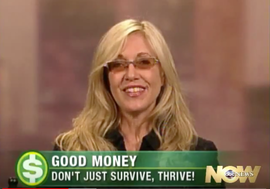 Natalie Wynne Pace is an Advocate for Sustainability, Financial Literacy & Women's Empowerment. Natalie is the bestselling author of The Power of 8 Billion: It's Up to Us and is the co-creator of the Earth Gratitude Project. She has been ranked as a No. 1 stock picker, above over 835 A-list pundits, by an independent tracking agency (TipsTraders). Her book The ABCs of Money remained at or near the #1 Investing Basics e-book on Amazon for over 3 years (in its vertical), with over 120,000 downloads and a mean 5-star ranking. The 5th edition of The ABCs of Money and the 2nd edition of Put Your Money Where Your Heart Is were released in 2021. Follow her on Instagram. Natalie Pace's easy as a pie chart nest egg strategies earned gains in the last two recessions and have outperformed the bull markets in between. That is why her Investor Educational Retreats, books and private coaching are enthusiastically recommended by Nobel Prize winning economist Gary S. Becker, TD AMERITRADE chairman Joe Moglia, Kay Koplovitz and many Main Street investors who have transformed their lives using her Thrive Budget and investing strategies. Click to view a video testimonial from Nilo Bolden. Check out Natalie Pace's Substack on Apple and Spotify. Watch videoconferences and webinars on Youtube. Other Blogs of Interest The Winners & Losers of 2023. Ozempic, Magnificent 7 & Beyond. 2024 Crystal Ball. The Underperforming DJIA, Full of Fossil Fuels and Forever Chemicals. A Spectacular Year for 3 of the Magnificent 7. The Best ROI* (Almost 40%!) & 7 Life Hacks That Save Thousands. Portugal Eliminates Tax Advantages for Ex-Pats. Holiday Gift Giving on any Budget. Including No Budget. Once in a Century Events are Happening Every Day. The Crypto Winter Enters Its 3rd Year. Earn $50,000 or More in Interest. Safely. Finally. Freebies and Deals for Black Friday and Cyber Monday. Auto Strikes End. EV Price Wars Continue. WeWork's Bankruptcy. Half-Empty Office Buildings. Problems in our Personal Wealth Plan. Solutions for Unaffordable Housing. The Magnificent 7 Drag NASDAQ into Another Correction Cruise Ships Give Freebies to Investors. Should You Take the Bait? Should You Take a Cruise? Bonds. Banks. The Treacherous Landscape of Keeping Our Money Safe. 7 Rules of Investing Air B N Bust? Santa Rally 2023 or Time to Get Defensive? Barbie. Oppenheimer. Strikes. Streaming Wars. Netflix. Monero: A Token of Trust? 13 Lifestyle Choices to Reduce Waste, Pollution & CO2 & Save a Boatload of Dough. China Bans Apple 11-Point Green Checklist for Schools. Artificial Intelligence and Nvidia's Blockbuster Earnings Report Biotech in a Post-Pandemic World 10 Wealth Secrets of Billionaires and Royals. What Happened to Cannabis? Bank of America has $100 Billion in Bond Losses (on Paper) The USA AAA Credit Rating is on a Negative Watch. Lithium. Essential to EV Life. I'm Just Not Good at Investing. Investors Ask Natalie. Should I Buy an S&P500 Index Fund? Investors Ask Natalie. Bonds Lost More than Stocks in 2022. 2023 Company of the Year Do Cybersecurity Risks Create Investor Opportunities? Writers Strike, While Streaming CEOs Rake In Hundreds of Millions Annually. I Lost $100,000. Investors Ask Natalie. Artificial Intelligence Report. Micron Banned in China. Intel Slashes Dividend. Buffett Loses $23 Billion. Branson's Virgin Orbit Declares Bankruptcy. Insurance Company Risks. Schwab Loses $41 Billion in Cash Deposits. Fiat. Crypto. Gold. BRICS. Real Estate. Alternative Investments. BRICS Currency. Will the Dollar Become Extinct? The Online Global Earth Gratitude Celebration 7 Green Life Hacks Fossil Fuels Touch Every Part of Our Lives Are There Any Safe, Green Banks? 7 Ways to Stash Your Cash Now. Lessons from the Silicon Valley Bank Failure. Which Countries Offer the Highest Yield for the Lowest Risk? Solar, EVs, Housing, HSAs -- the Highest-Yield in 2023? Why We Are Underweighting Banks and the Financial Industry. 2023 Bond Strategy Emotions are Not Your Friend in Investing Investor IQ Test Investor IQ Test Answers Bonds Lost -26%, Silver Held Strong. Save Thousands Annually With Smarter Energy Choices Is Your FDIC-Insured Cash Really Safe? Money Market Funds, FDIC, SIPC: Are Any of Them Safe? My 24-Year-Old is Itching to Buy a Condo. Should I Help Him? The 12-Step Guide to Successful Investing. The Bank Bail-in Plan on Your Dime. Rebalancing Your Nest Egg IQ Test. Answers to the Rebalancing Your Nest Egg IQ Test. Important Disclaimers Please note: Natalie Pace does not act or operate like a broker. She reports on financial news, and is one of the most trusted sources of financial literacy, education and forensic analysis in the world. Natalie Pace educates and informs individual investors to give investors a competitive edge in their personal decision-making. Any publicly traded companies or funds mentioned by Natalie Pace are not intended to be buy or sell recommendations. ALWAYS do your research and consult an experienced, reputable financial professional before buying or selling any security, and consider your long-term goals and strategies. Investors should NOT be all in on any asset class or individual stocks. Your retirement plan should reflect a diversified strategy, which has been designed with the assistance of a financial professional who is familiar with your goals, risk tolerance, tax needs and more. The "trading" portion of your portfolio should be a very small part of your investment strategy, and the amount of money you invest into individual companies should never be greater than your experience, wisdom, knowledge and patience. Information has been obtained from sources believed to be reliable. However, NataliePace.com does not warrant its completeness or accuracy. Opinions constitute our judgment as of the date of this publication and are subject to change without notice. This material is not intended as an offer or solicitation for the purchase or sale of any financial instrument. Securities, financial instruments or strategies mentioned herein may not be suitable for all investors. The Winners and Losers of 2023. From Ozempic and Real Estate to The Magnificent 7 & Beyond.2/1/2024
The Winners and Losers of 2023. From Ozempic and Real Estate to The Magnificent 7 & Beyond. The S&P500 soared 24.23% in 2023. However, the performance was concentrated in only a few winners, namely the Magnificent 7, with average returns of 104.7% each. Without them, the 2023 return of the S&P500 was just 9.94%. The Dow Jones Industrial Average lagged the race, with 13.9% gains, while the technology-rich NASDAQ Composite Index rocketed up an impressive 43.4%. Here’s the 2023 S&P500 sector performance chart. 2023 Super Performers All things Magnificent 7 Ozempic Crypto That’s pretty much it Still Down Over the 2-Year Period The 2-year performance of the S&P500 is flat, after -19.44% losses in 2022. The industries that are still down over the 2-year period are: Materials Consumer Discretionary Consumer Staples Health Care Financials Communication Services Utilities Real Estate Only Energy, Industrials and Information Technology are up over the 2-year period. 2023 Losers Energy Consumer Staples Utilities Let’s dive deeper into the industries themselves. The Magnificent 7 Ozempic & Biotech Real Estate Financials Energy Materials Utilities & Consumer Staples Bonds And here is more information on each industry. The Magnificent 7: Information Technology, Communication Services and Consumer Discretionary The Magnificent 7 was responsible for the best performing industries of 2023, with gains of 41.04% in consumer discretionary, 56.4% in information technology and 54.5% in communication services. If our portfolio didn’t have large cap growth in 2023, then our performance was likely lackluster. If we were heavy on energy, utilities, health care or consumer staples, then we might have lost money. In our Sample Pie Charts and at our Financial Freedom retreats, we have encouraged leaning into the Magnificent 7 in the Hot Slices, in funds like iShares TECB, as well as in our large growth slice. Annual rebalancing helps us to keep our portfolio growing (by capturing gains). So, when we’ve had a spectacular year in large growth and/or our Magnificent 7, now’s a great time to capture gains and trim slices back to an appropriate diversification based upon our age. Learn more about the Magnificent 7 in our recent blog. Ozempic & Biotech Ozempic (a weight loss drug) inspired gains in their parent company Novo Nordisk, of 49% in 2023. However, despite a new variant of COVID, most pandemic-related companies watched their revenues plunge, which took share prices down with them. Moderna, Pfizer and Johnson & Johnson are all trading at their pre-pandemic lows. The iShares Biotechnology Fund (IBB) is still down -21.6% from its Sept. 2021 high. Real Estate Real estate is down -22.53% over the 2-year period, but was up 8.27% in 2023. Investors are betting that rate cuts in 2024 will fire up the marketplace, since there is so much pent-up housing demand. However, the story is more complicated than that, particularly since home prices are near all-time highs and are unaffordable in most of the U.S. High prices and unaffordability in housing make this industry vulnerable. When costs of purchasing a home are 1/3 or more of our salary, few of us can qualify for a loan. Without the support that has been offered to assist homeowners and student loan borrowers, real estate would have been a lot weaker in 2023. Learn more in our 2024 Crystal Ball blog. Commercial real estate is one of the areas of greatest weakness in the economy, and is being monitored by the Treasury and Federal Reserve Board’s Financial Stability Committees. Financials The Federal Reserve’s special Bank Term Funding Program is responsible for the gains of 9.94% in the financial industry for 2023. There were three very high-profile (and expensive) bank failures in the first half of 2023, with two more folding in July and November 2023. Without the BTFP, which takes the bond losses (on paper) off the books for a year, more banks were at risk of failing. The commercial real estate industry will continue to plague banks and insurance companies in 2024. Insurance companies can now defer their losses through 2025, according to a new rule proposed by National Association of Insurance Commissioners. The BTFP will continue to offer support to qualifying banks until at least March 11, 2024, with a term of one year. The federal support should keep FDIC seizures and insurance company implosions at bay until after the 2024 Presidential election. Will the programs be extended in 2025? We have value replacement funds in our sample pie charts because leaning into other countries offers diversification, superior credit ratings and often double the dividend than the U.S. value funds that are heavily weighted toward financials. Learn more at our Jan. 13-15, 2024 Financial Freedom Retreat. Energy Energy was on fire in 2022, after Russia invaded Ukraine. However, oil prices are down to $76/barrel (WITI), after soaring above $120/barrel in March of 2022. The shift to clean energy, electric cars, and work-from-home/hybrid commute trends have reduced demand expectations for oil prices. China’s shift toward EVs has been particularly robust. OPEC has been trying to get oil prices above $80/barrel by cutting production. However, unless there is another major shock to the industry, prices could stay in the current range. Materials Materials like copper and lithium are essential to the Clean Energy Revolution. Copper has been dubbed “The New Oil” by Goldman Sachs. We’ve listed a few strategic materials-rich countries for our small and mid-cap value replacement funds. Learn more at our Jan. 13-15, 2024 Financial Freedom Retreat. Utilities & Consumer Staples Utilities and consumer staples were weak spots of 2023, with losses of -10.20% and -2.16%, respectively. However, in 2022, when the S&P500 dropped -19.44%, these industries remained buoyant, with a drop of just -1.44% and -3.17%, respectively. Still, there is a difference between the old-school companies, which tend to be slow growth and weighed down by debt, and those younger, leaner, high-growth companies that are leaning into a cleaner, greener tomorrow. That difference is easy to see in the underperforming DJIA, and is something we focus on at our Financial Freedom Retreat. Join us Jan. 13-15, 2024. Bonds Long-term government bonds continued to lose value in 2023. However, there is now an opportunity to earn $50,000 on a million fairly safely (5%). FYI: Some of the best-performing bonds are those where we think outside the box, purchase assets that are not offered by our broker/salesman, and toss bills out the window. Due to the tricky nature of the “safe” side of our nest egg, we spend one full day on What’s Safe at our Financial Freedom Retreat. Bonds lost more than stocks in 2022 and 2023. The safe side of our wealth plan is not supposed to lose money. Bottom Line Past performance is no reliable gauge for tomorrow. However, if we understand the underlying causes of strength or weakness in various industries, and how to protect ourselves from risk while leaning into performance, then we can continue to protect and grow wealth in any environment. Since economic growth in 2024 is expected to slow dramatically worldwide, down to 1.5% in the U.S., 1.6% in Canada and 4.2% in China, now is a great time to know exactly what we own and why. We want to make sure that we are properly protected and diversified. Taking a look at the annual returns of our plan in 2023, and comparing them to the spectacular 24.23% performance of the S&P500 is a good place to start to understand how our plan measures up. Considering that 2-year returns are flat and long-term bonds are still losing value, it’s a great idea to get forensic about what we own – something we can learn how to do at the Jan. 13-15, 2024 Retreat and the Rebalancing Master Class on Jan. 20, 2024. Doing this now – before the first weak GDP report is published, is a great idea. Email [email protected] or call 310-430-2397 to learn more. I'll be interviewing Howard Silverblatt, the senior index analyst of S&P Dow Jones Indices (the S&P500) on Jan. 11, 2024. You can watch that interview at YouTube.com/NataliePace. Be sure to subscribe there so you're never miss any of our important interviews and free monthly videoconferences. Join us at our Jan. 13-15, 2024 New Year, New You Financial Freedom Retreat. Get valuable data and tools on how to best invest and monetize in real estate. Learn nest egg strategies, how to get hot and diversified (including in EVs, crypto and AI), and what's safe in a Debt World. You'll even discover how to save thousands annually with smarter big-ticket choices. Yes, it's a complete money makeover, which is a great way to start 2024! Email [email protected] to register. Learn the 15+ things you'll master and read testimonials in the flyer (link below) and on the home page at NataliePace.com. Register with friends and family to receive the best price. "Ten minutes into the first day I was already much smarter about investing than I ever thought I would be in my life and I knew I was in exactly the right place at this retreat. I am amazed at how EASY and FUN it is to make my money work for me and those I love. I think this kind of information should be compulsory in schools. I wish I'd learned this sooner." CM  Join us for our Online New Year, New You Financial Freedom Retreat. Jan. 13-15, 2024. Email [email protected] or call 310-430-2397 to learn more. Register with friends and family to receive the best price. Click for testimonials, pricing, hours & details.  Join us for our Restormel Royal Immersive Adventure Retreat. March 8-15, 2024. Email [email protected] to learn more. Register with friends and family to receive the best price. Click for testimonials, pricing, hours & details. There is very limited availability, and you must register early to ensure that you get the exact room you want. This retreat includes an all-access pass to all of our online training for a full year for two! 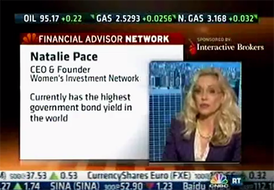 Natalie Wynne Pace is an Advocate for Sustainability, Financial Literacy & Women's Empowerment. Natalie is the bestselling author of The Power of 8 Billion: It's Up to Us and is the co-creator of the Earth Gratitude Project. She has been ranked as a No. 1 stock picker, above over 835 A-list pundits, by an independent tracking agency (TipsTraders). Her book The ABCs of Money remained at or near the #1 Investing Basics e-book on Amazon for over 3 years (in its vertical), with over 120,000 downloads and a mean 5-star ranking. The 5th edition of The ABCs of Money and the 2nd edition of Put Your Money Where Your Heart Is were released in 2021. Follow her on Instagram. Natalie Pace's easy as a pie chart nest egg strategies earned gains in the last two recessions and have outperformed the bull markets in between. That is why her Investor Educational Retreats, books and private coaching are enthusiastically recommended by Nobel Prize winning economist Gary S. Becker, TD AMERITRADE chairman Joe Moglia, Kay Koplovitz and many Main Street investors who have transformed their lives using her Thrive Budget and investing strategies. Click to view a video testimonial from Nilo Bolden. Check out Natalie Pace's Substack on Apple and Spotify. Watch videoconferences and webinars on Youtube. Other Blogs of Interest 2024 Crystal Ball. The Underperforming DJIA, Full of Fossil Fuels and Forever Chemicals. A Spectacular Year for 3 of the Magnificent 7. The Best ROI* (Almost 40%!) & 7 Life Hacks That Save Thousands. Portugal Eliminates Tax Advantages for Ex-Pats. Holiday Gift Giving on any Budget. Including No Budget. Once in a Century Events are Happening Every Day. The Crypto Winter Enters Its 3rd Year. Earn $50,000 or More in Interest. Safely. Finally. Freebies and Deals for Black Friday and Cyber Monday. Auto Strikes End. EV Price Wars Continue. WeWork's Bankruptcy. Half-Empty Office Buildings. Problems in our Personal Wealth Plan. Solutions for Unaffordable Housing. The Magnificent 7 Drag NASDAQ into Another Correction Cruise Ships Give Freebies to Investors. Should You Take the Bait? Should You Take a Cruise? Bonds. Banks. The Treacherous Landscape of Keeping Our Money Safe. 7 Rules of Investing Air B N Bust? Santa Rally 2023 or Time to Get Defensive? Barbie. Oppenheimer. Strikes. Streaming Wars. Netflix. Monero: A Token of Trust? 13 Lifestyle Choices to Reduce Waste, Pollution & CO2 & Save a Boatload of Dough. China Bans Apple 11-Point Green Checklist for Schools. Artificial Intelligence and Nvidia's Blockbuster Earnings Report Biotech in a Post-Pandemic World 10 Wealth Secrets of Billionaires and Royals. What Happened to Cannabis? Bank of America has $100 Billion in Bond Losses (on Paper) The USA AAA Credit Rating is on a Negative Watch. Lithium. Essential to EV Life. I'm Just Not Good at Investing. Investors Ask Natalie. Should I Buy an S&P500 Index Fund? Investors Ask Natalie. Bonds Lost More than Stocks in 2022. 2023 Company of the Year Do Cybersecurity Risks Create Investor Opportunities? Writers Strike, While Streaming CEOs Rake In Hundreds of Millions Annually. I Lost $100,000. Investors Ask Natalie. Artificial Intelligence Report. Micron Banned in China. Intel Slashes Dividend. Buffett Loses $23 Billion. Branson's Virgin Orbit Declares Bankruptcy. Insurance Company Risks. Schwab Loses $41 Billion in Cash Deposits. Fiat. Crypto. Gold. BRICS. Real Estate. Alternative Investments. BRICS Currency. Will the Dollar Become Extinct? The Online Global Earth Gratitude Celebration 7 Green Life Hacks Fossil Fuels Touch Every Part of Our Lives Are There Any Safe, Green Banks? 7 Ways to Stash Your Cash Now. Lessons from the Silicon Valley Bank Failure. Which Countries Offer the Highest Yield for the Lowest Risk? Solar, EVs, Housing, HSAs -- the Highest-Yield in 2023? Why We Are Underweighting Banks and the Financial Industry. 2023 Bond Strategy Emotions are Not Your Friend in Investing Investor IQ Test Investor IQ Test Answers Bonds Lost -26%, Silver Held Strong. Save Thousands Annually With Smarter Energy Choices Is Your FDIC-Insured Cash Really Safe? Money Market Funds, FDIC, SIPC: Are Any of Them Safe? My 24-Year-Old is Itching to Buy a Condo. Should I Help Him? The 12-Step Guide to Successful Investing. The Bank Bail-in Plan on Your Dime. Rebalancing Your Nest Egg IQ Test. Answers to the Rebalancing Your Nest Egg IQ Test. Important Disclaimers Please note: Natalie Pace does not act or operate like a broker. She reports on financial news, and is one of the most trusted sources of financial literacy, education and forensic analysis in the world. Natalie Pace educates and informs individual investors to give investors a competitive edge in their personal decision-making. Any publicly traded companies or funds mentioned by Natalie Pace are not intended to be buy or sell recommendations. ALWAYS do your research and consult an experienced, reputable financial professional before buying or selling any security, and consider your long-term goals and strategies. Investors should NOT be all in on any asset class or individual stocks. Your retirement plan should reflect a diversified strategy, which has been designed with the assistance of a financial professional who is familiar with your goals, risk tolerance, tax needs and more. The "trading" portion of your portfolio should be a very small part of your investment strategy, and the amount of money you invest into individual companies should never be greater than your experience, wisdom, knowledge and patience. Information has been obtained from sources believed to be reliable. However, NataliePace.com does not warrant its completeness or accuracy. Opinions constitute our judgment as of the date of this publication and are subject to change without notice. This material is not intended as an offer or solicitation for the purchase or sale of any financial instrument. Securities, financial instruments or strategies mentioned herein may not be suitable for all investors. |
AuthorNatalie Pace is the co-creator of the Earth Gratitude Project and the author of The Power of 8 Billion: It's Up to Us, The ABCs of Money, The ABCs of Money for College, The Gratitude Game and Put Your Money Where Your Heart Is. She is a repeat guest & speaker on national news shows and stages. She has been ranked the No. 1 stock picker, above over 830 A-list pundits, by an independent tracking agency, and has been saving homes and nest eggs since 1999. Archives
July 2024
Categories |









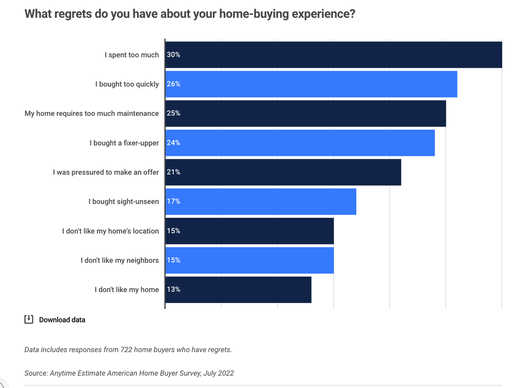
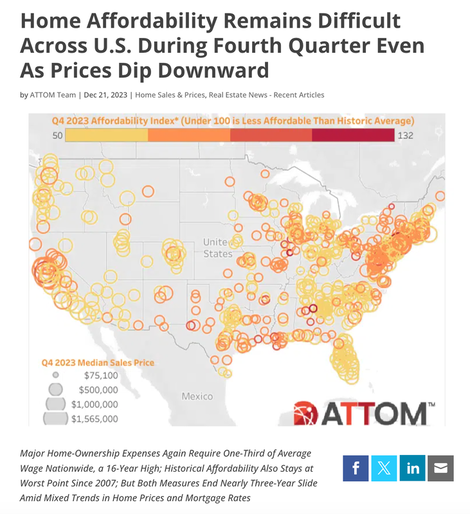


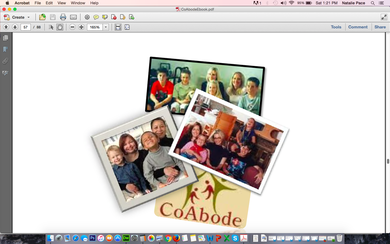

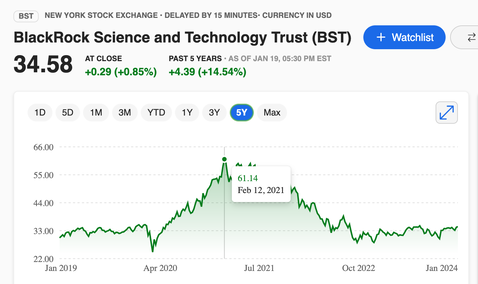
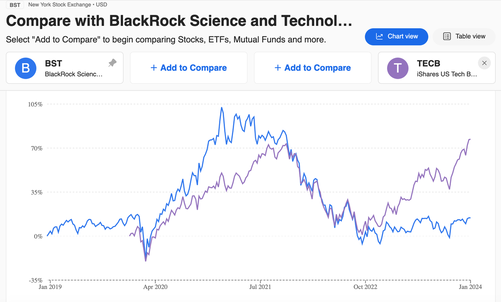
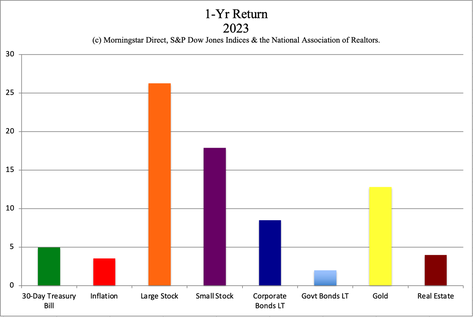
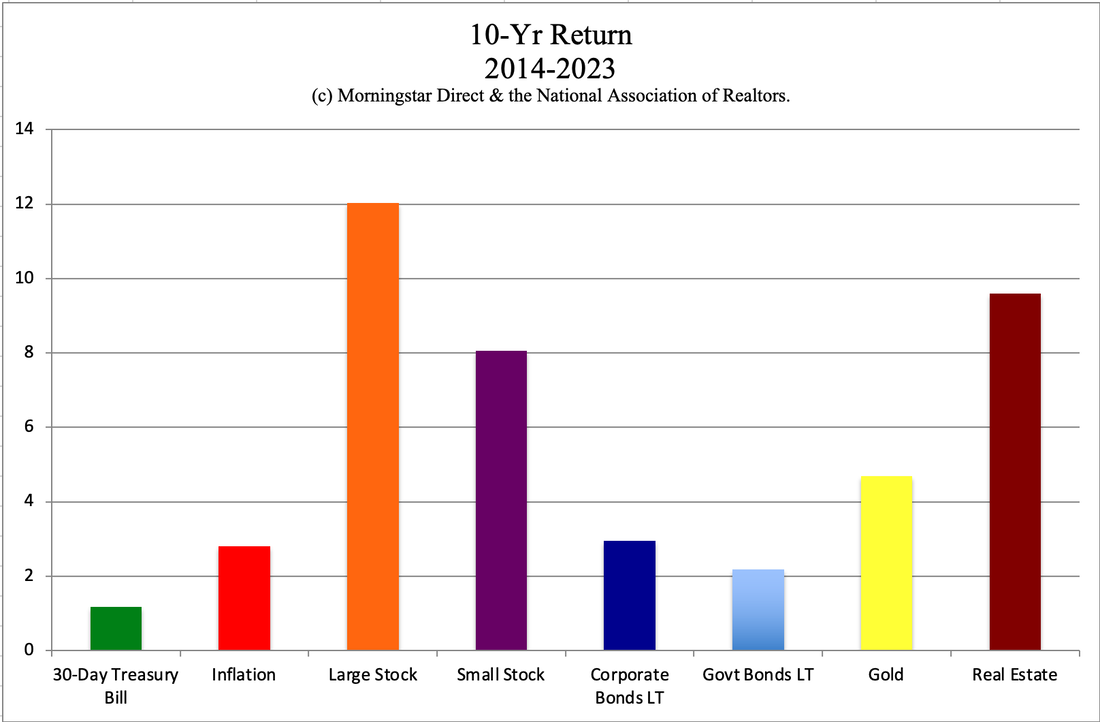
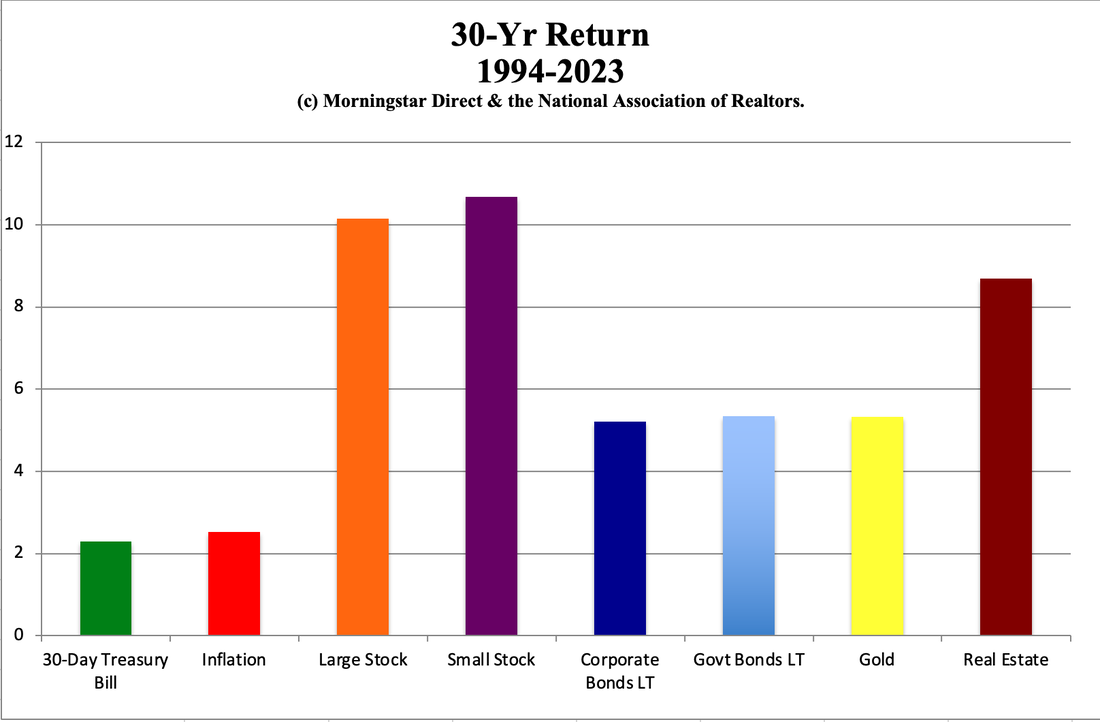
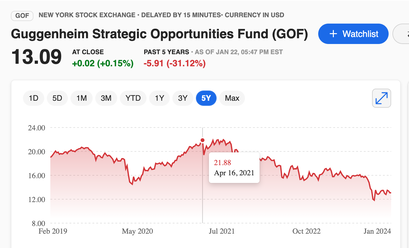
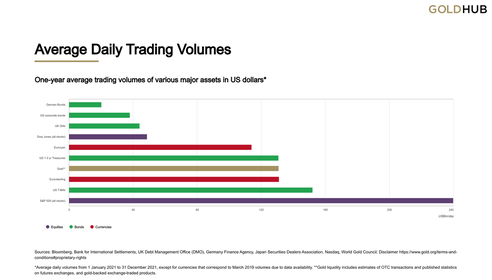


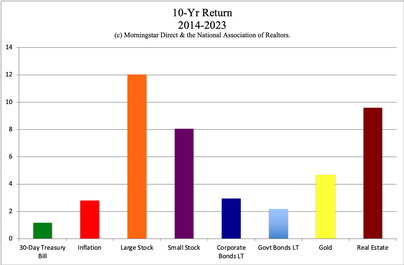
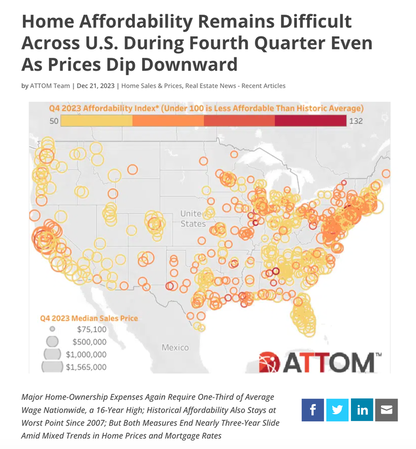
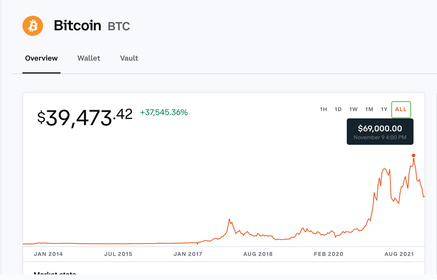
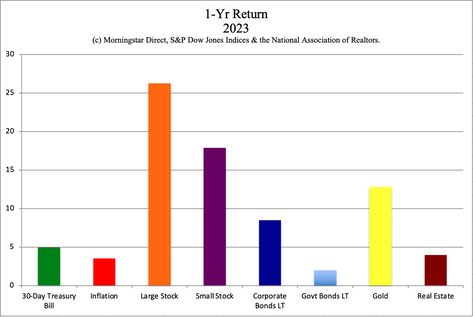
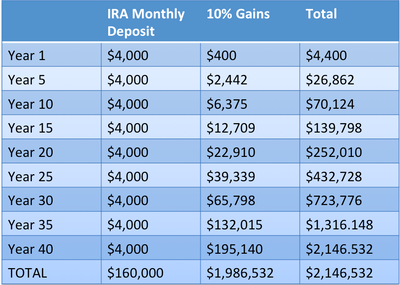
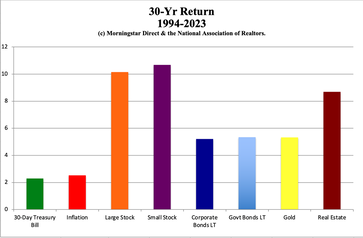
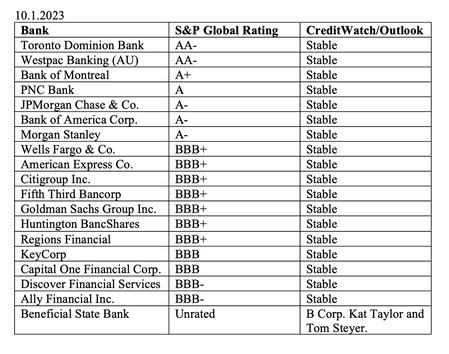
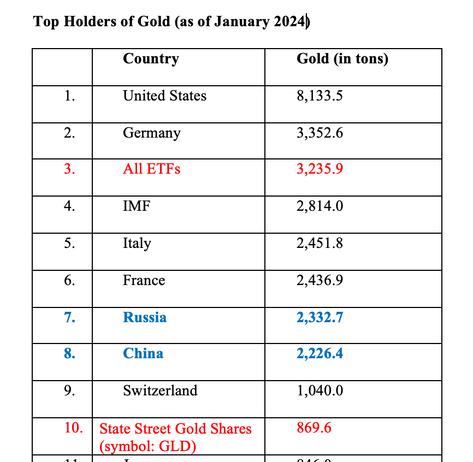
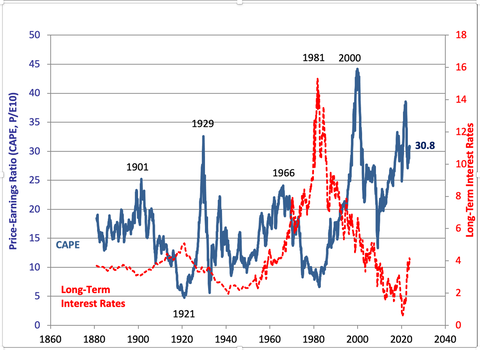
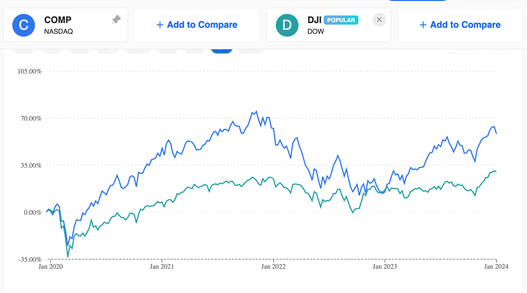
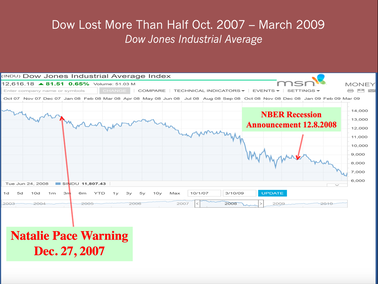
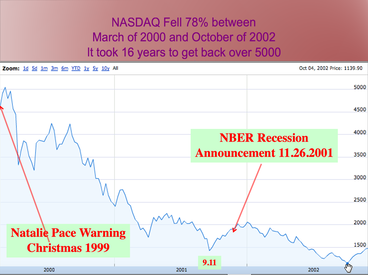




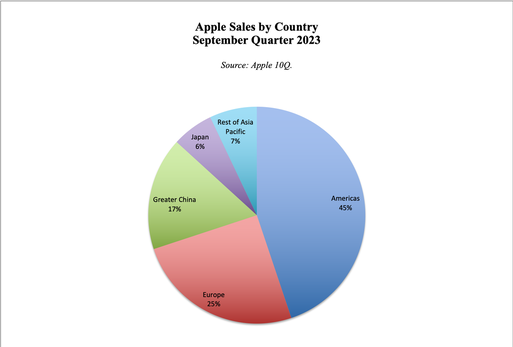
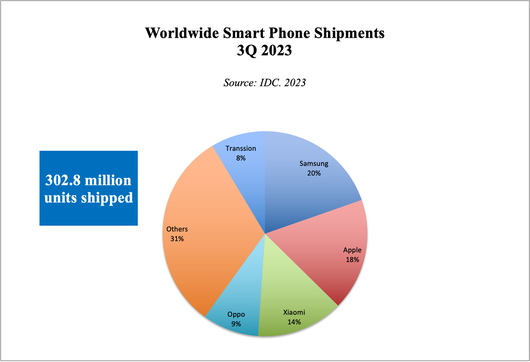
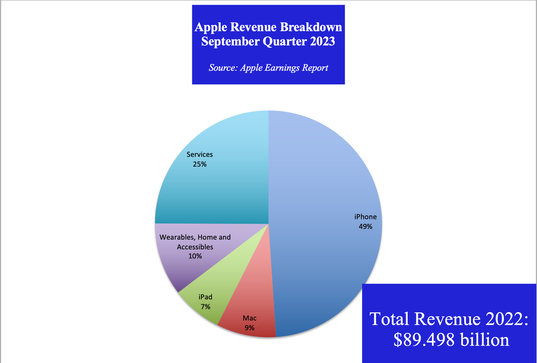
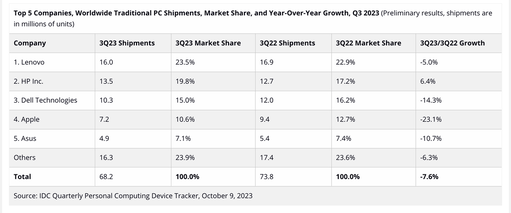
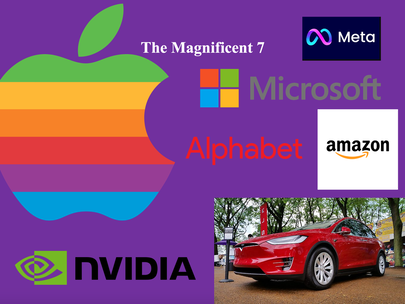
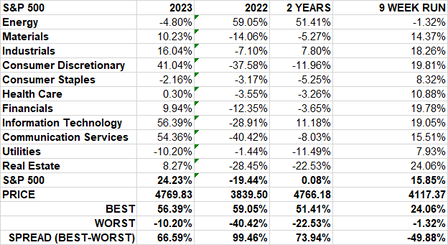
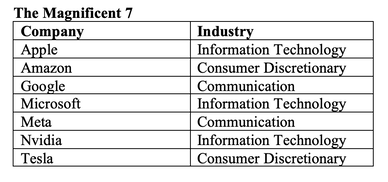
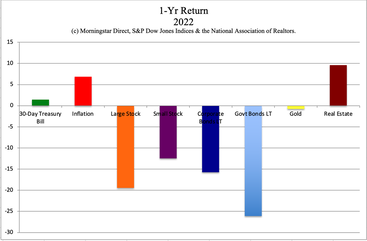
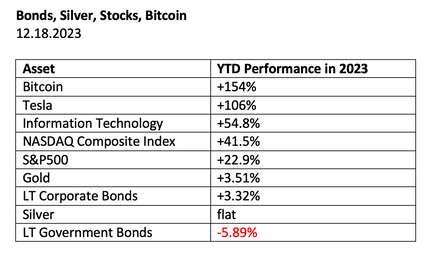
 RSS Feed
RSS Feed